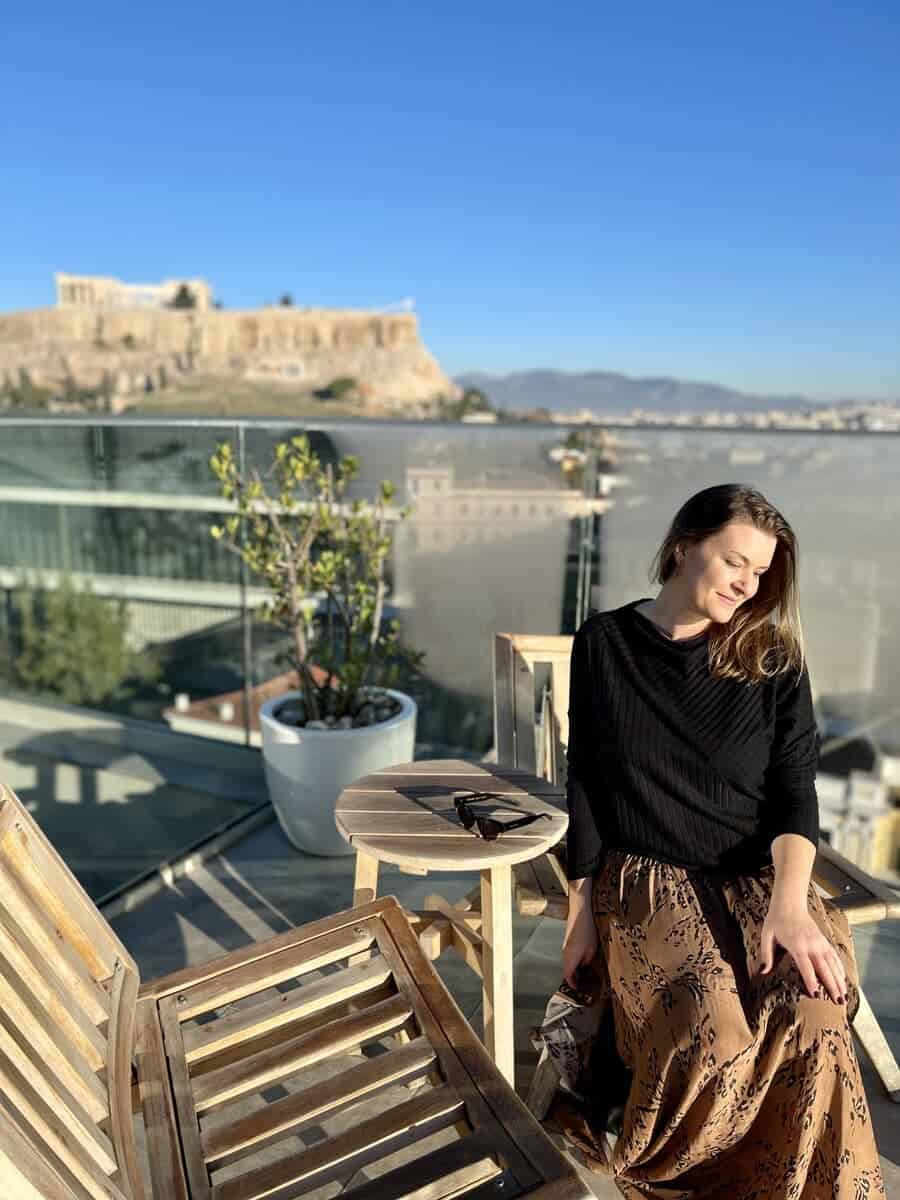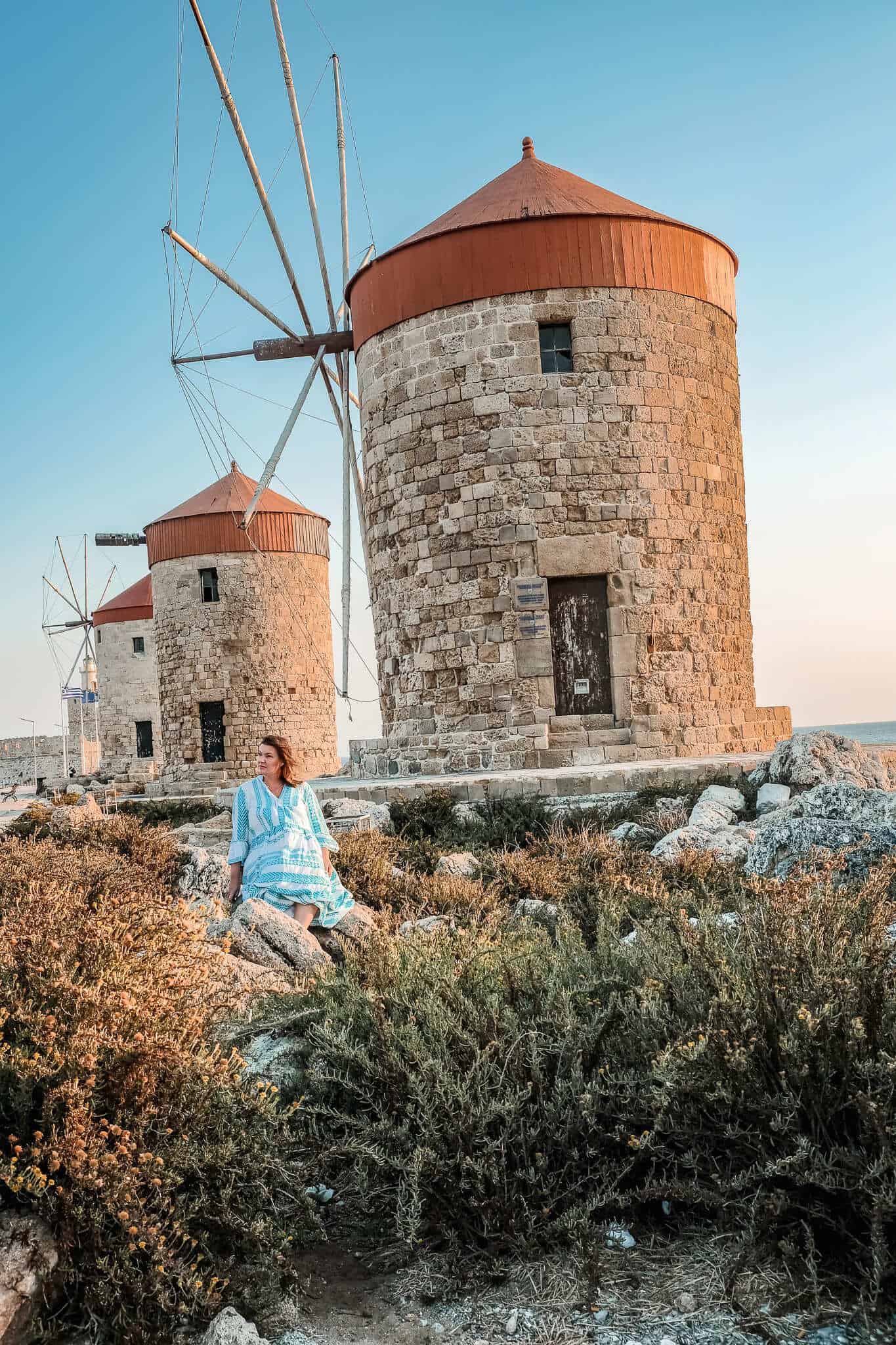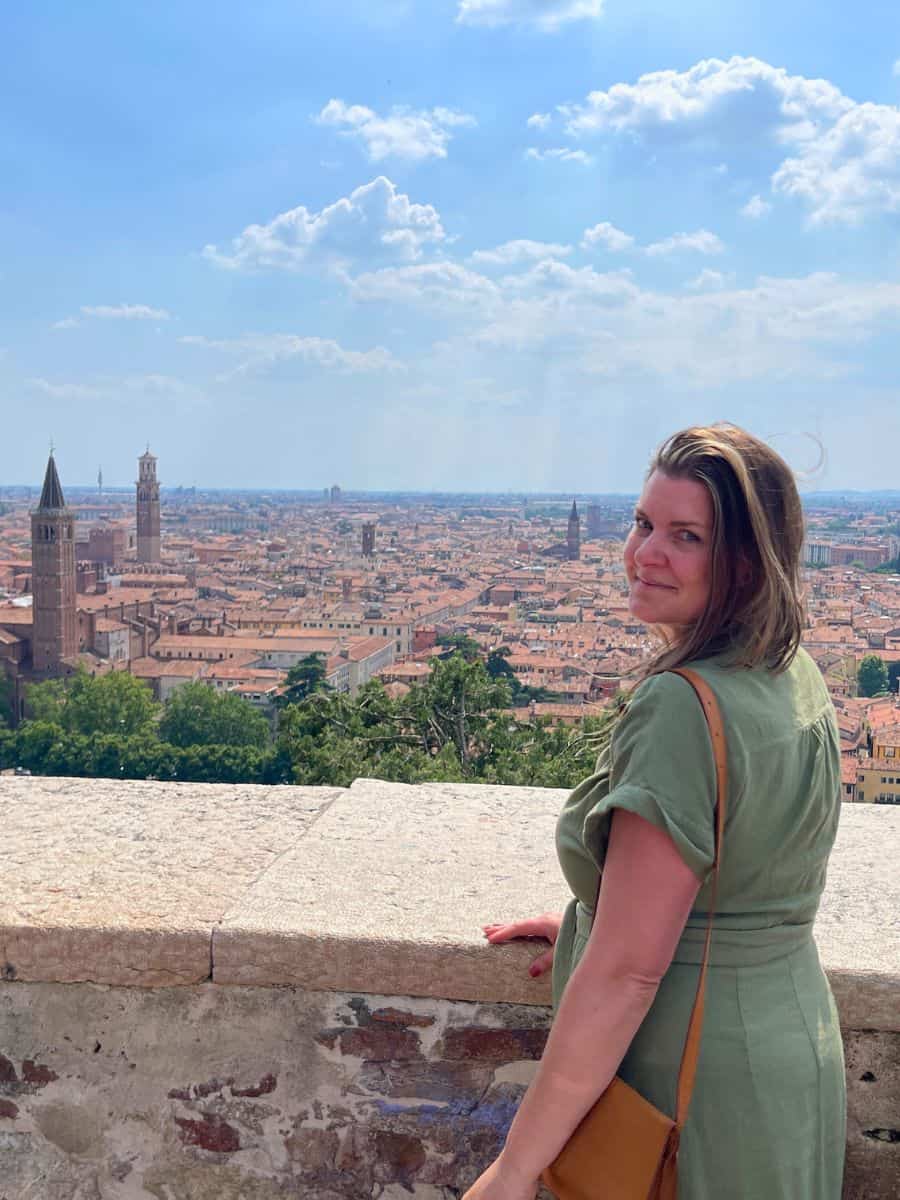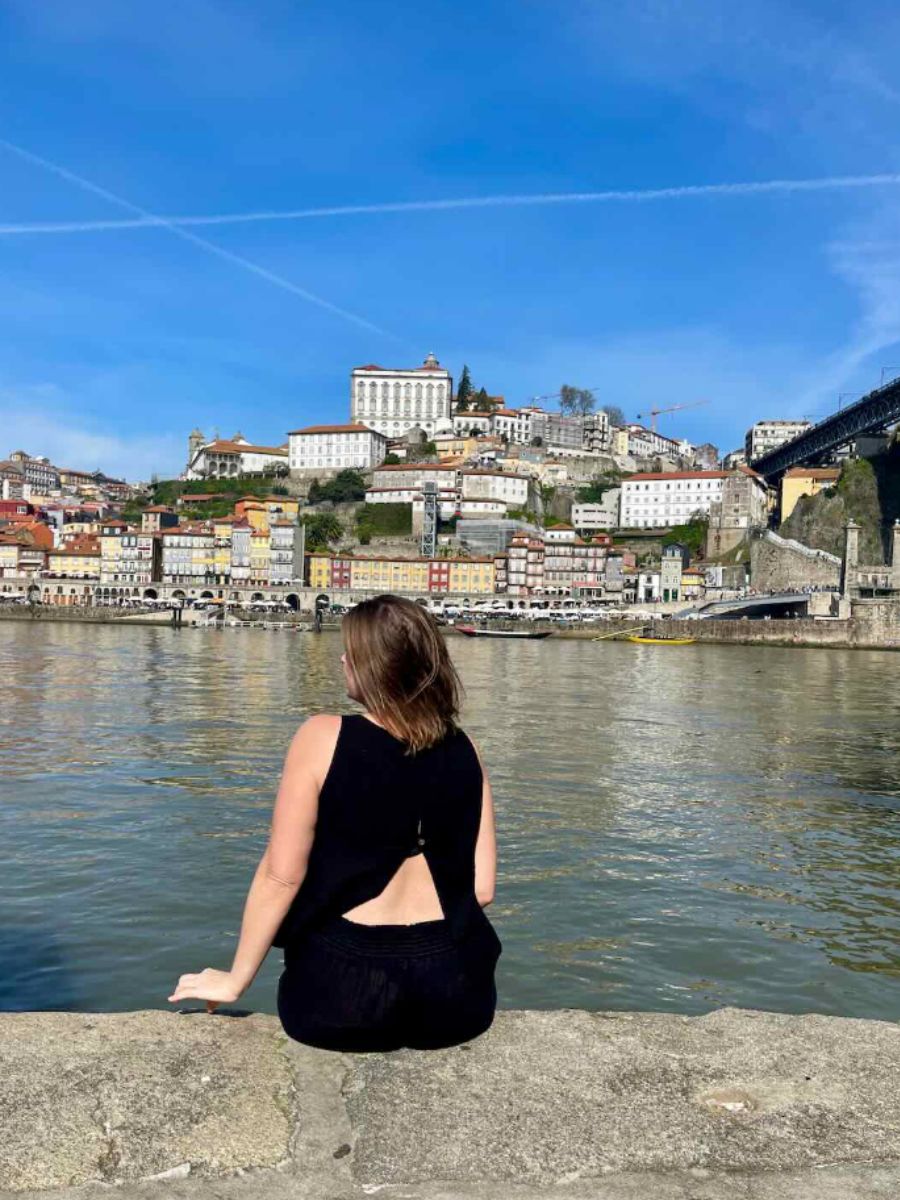A Solo Woman Traveling uses human-written content that contains affiliate links and is a member of Amazon Services LLC. When you make a purchase on a link, we may receive a small commission. This is at no extra cost to you. See Our Affiliate Policy and Advertiser Disclosure for more info.
Traveling to Germany but trying to decide between Berlin and Munich? I faced this same predicament myself, but ultimately found time to visit both after I moved to Berlin in 2017.
These two large German cities couldn’t be more different from one another. Honestly, that actually makes it easier to decide which one might be better for your trip.
Since they’re simply too far apart to do as a day trip, you’ll have to choose. But I really think if you ask yourself a few key questions and weigh them against your travel style, it might not be such a hard decision to make.
In a nutshell, Berlin is edgier, more vibrant, kind of ugly in some places, but totally badass. Munich is beautiful, smaller, very traditionally German, and more expensive in some ways.
If it’s your first time in Germany and you’re craving that “classic German experience,” go to Munich. But if you’re a history buff, love the unconventional, and want a more international food scene, go to Berlin.
Let’s get into why below!
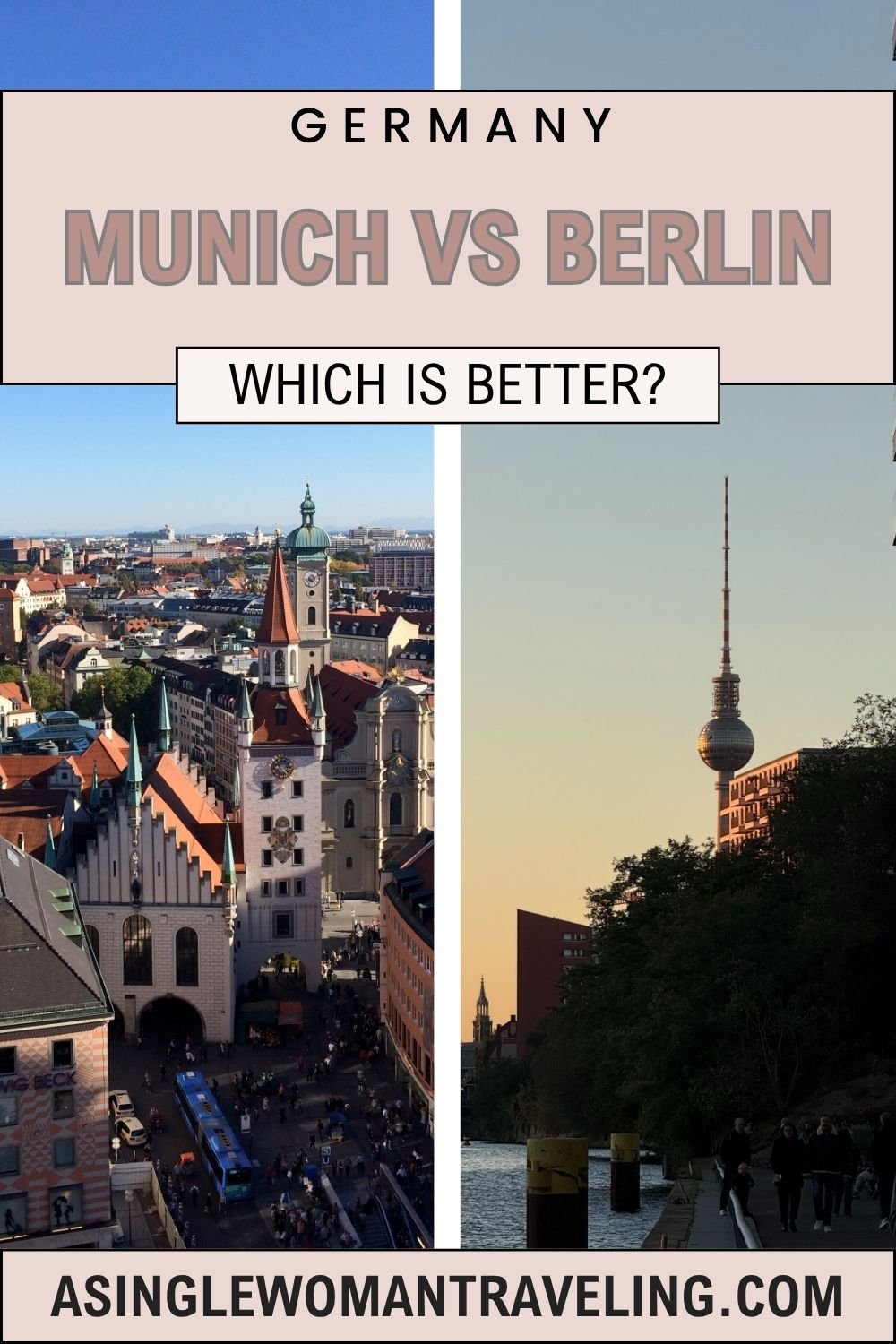

Overview: Vibes of Berlin
As I mentioned above, Berlin is a bit of an “anything goes” kind of city. It’s kind of like Los Angeles in a lot of ways. Diverse, full of character, and a mix of old and new.
I’ll be honest, on my first visit, I didn’t fall in love with Berlin the way I did with Munich. Mainly because I didn’t have enough time there and didn’t see its charm until I later moved to the city.
Berlin has so much more to offer than what you’ll find on TripAdvisor.
It’s a city you feel, if you know what I mean. If big cities stress you out, that might be a sign to skip it and head to Munich instead.
To really enjoy Berlin, you’ve got to embrace the public transport and all the hustle and bustle. Unlike Munich, where you can walk to most of the main sights, Berlin is more spread out and fast-paced, but that’s part of its magic.
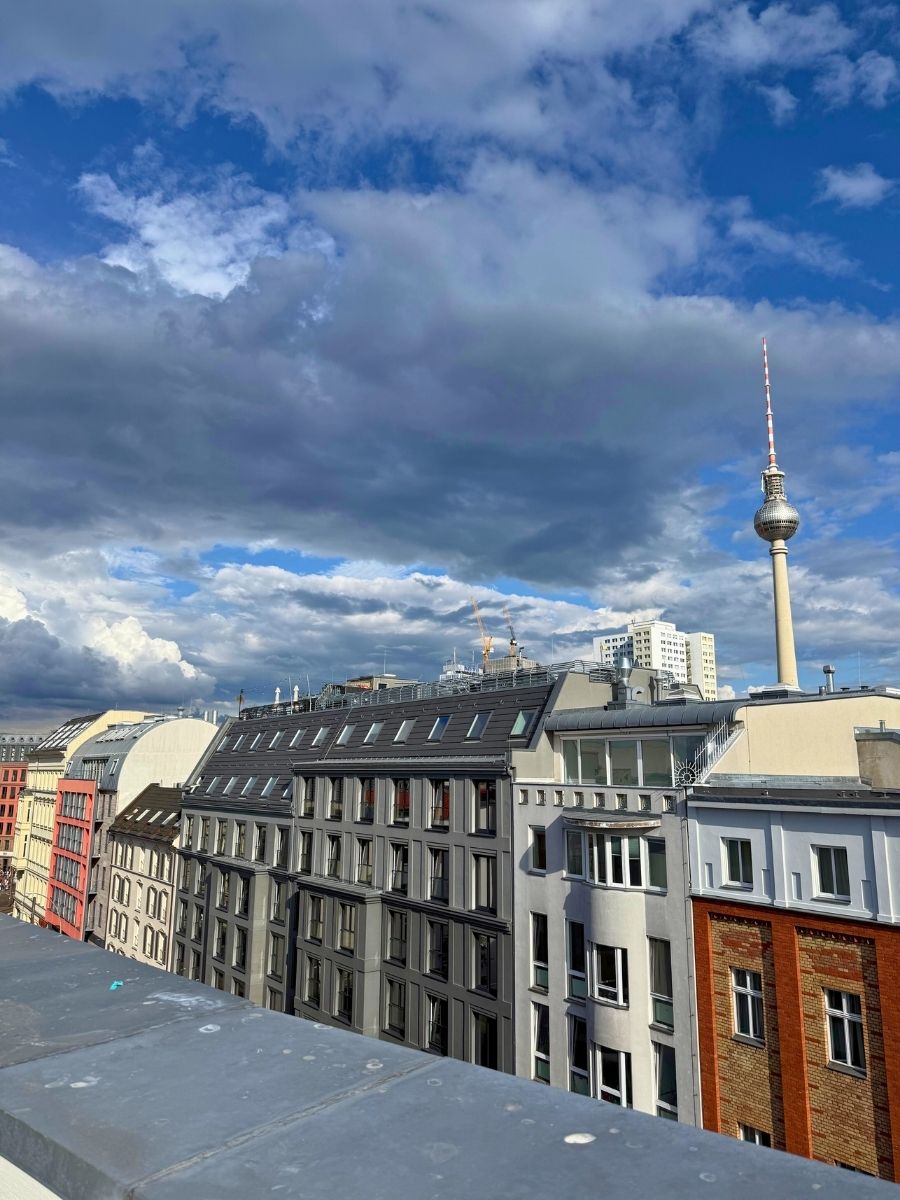
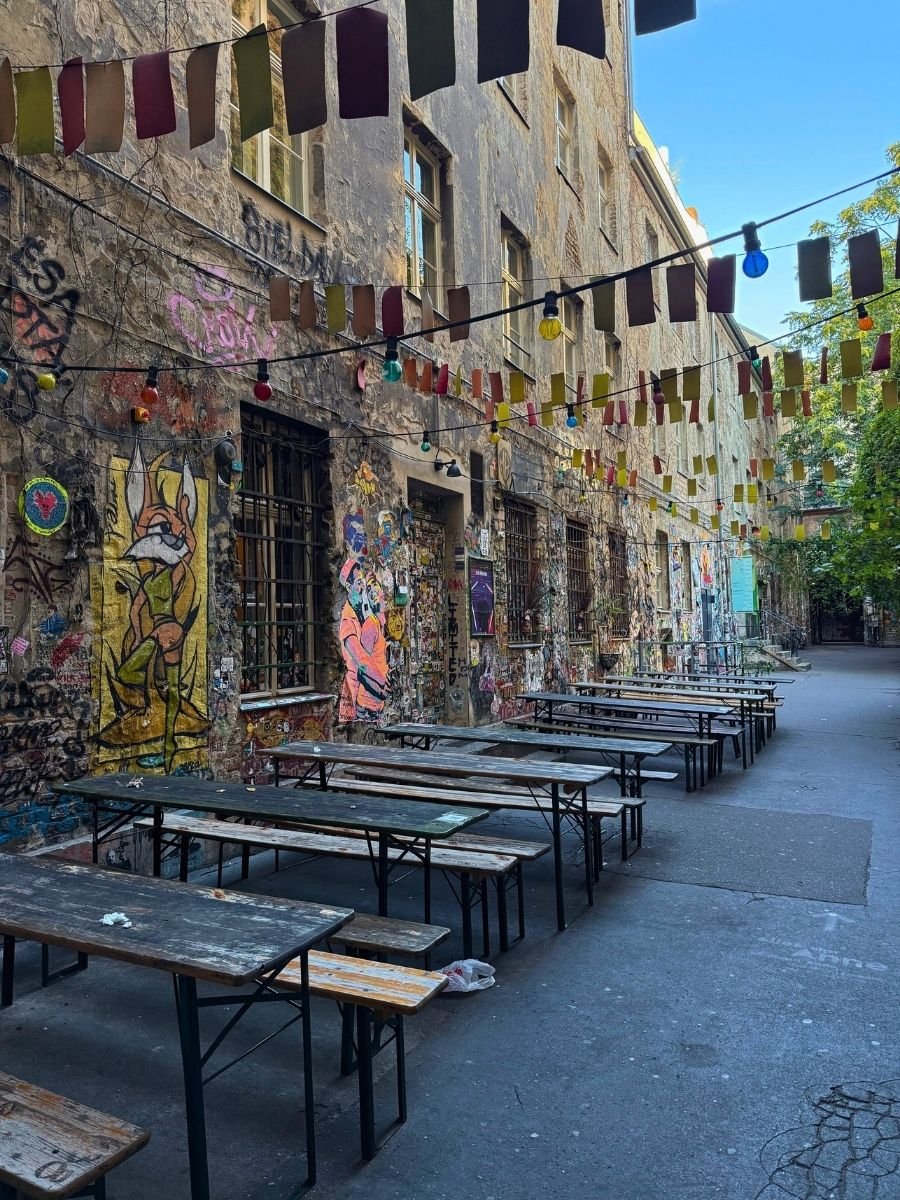
Overview: Vibes of Munich
If you love architecture and nature, I think Munich is going to be your city. Munich is very Catholic, very traditional, and a city that takes itself pretty seriously. You’ll see some homeless people, but it’s much cleaner than in Berlin.
Munich has a more upscale feel compared to Berlin, and you’ll notice that right away if you visit both.
The beer gardens and parks in Munich are amazing. If you’re visiting in the warmer months, you’ll really get to enjoy everything the city has to offer.
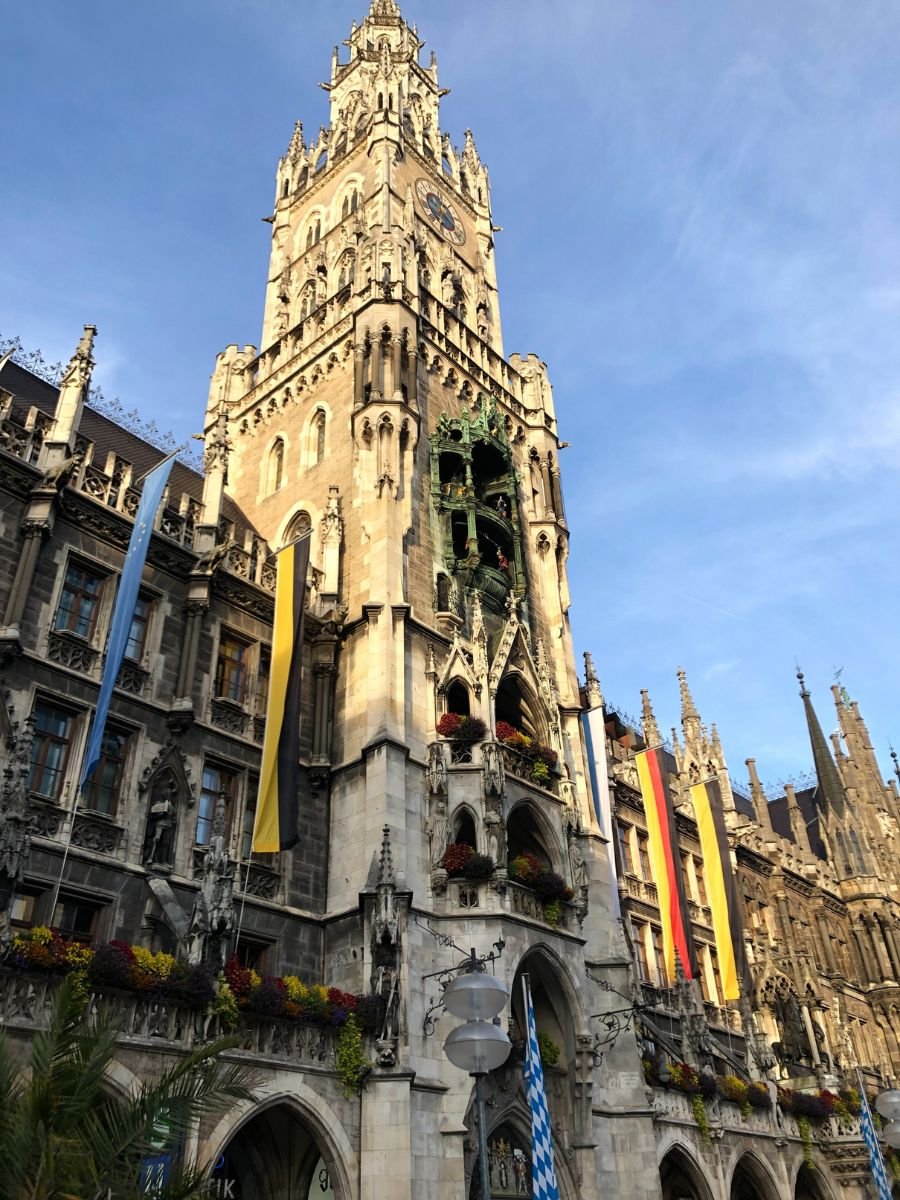
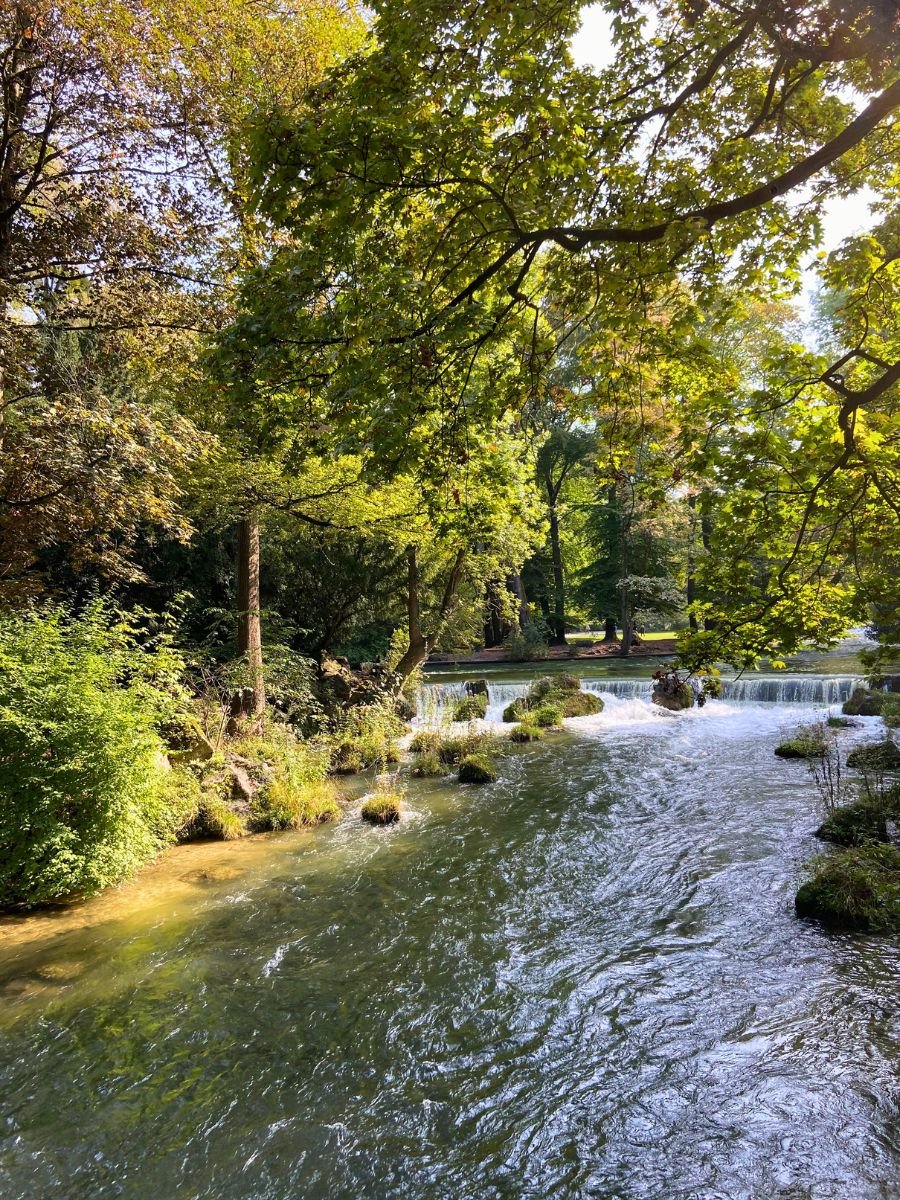
You’ll love Berlin if
If you’re someone who thrives in a big city, feels comfortable using public transport, and doesn’t mind the occasional odd character walking by, you’ll love everything Berlin has to offer.
It’s truly one of the best cities in the world. And if you’re into the club or bar scene, then the decision is already made for you. Berlin is your city.
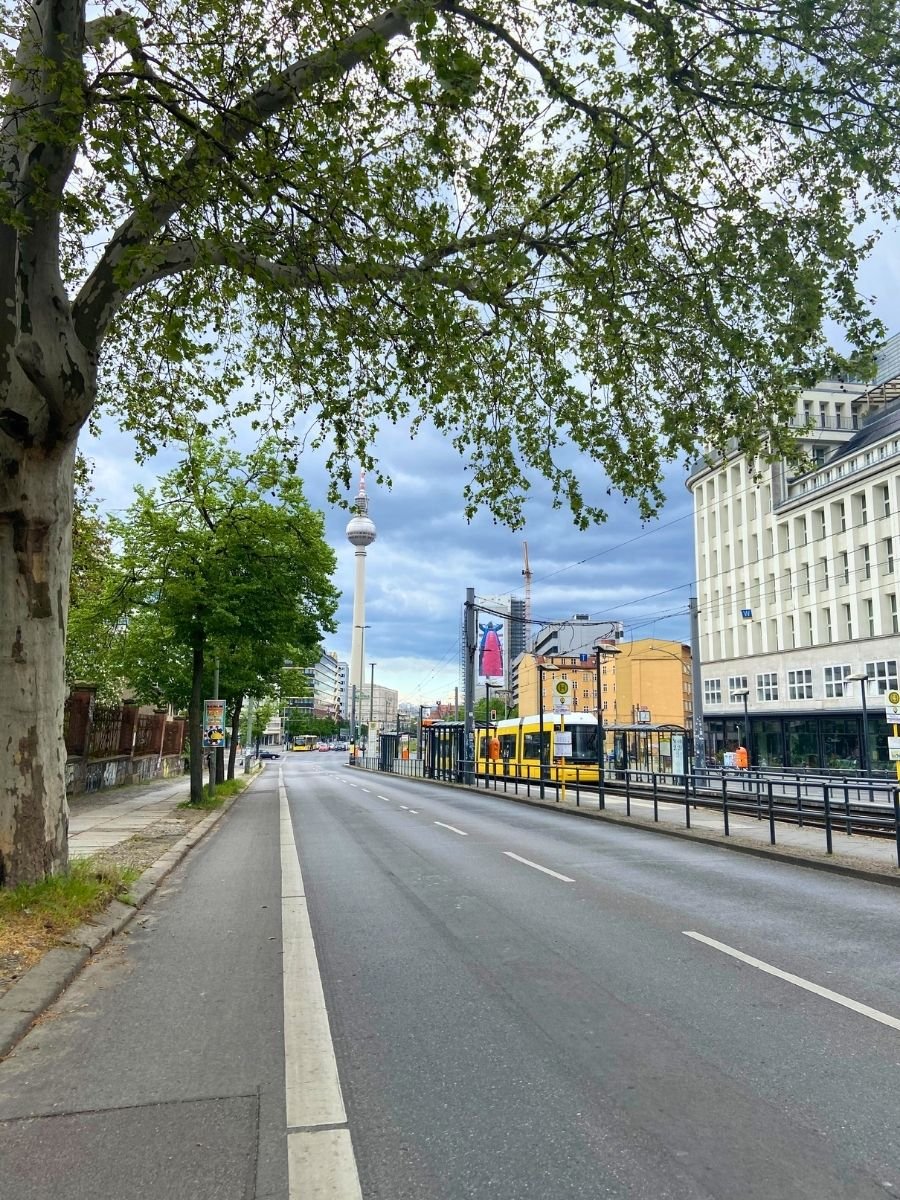
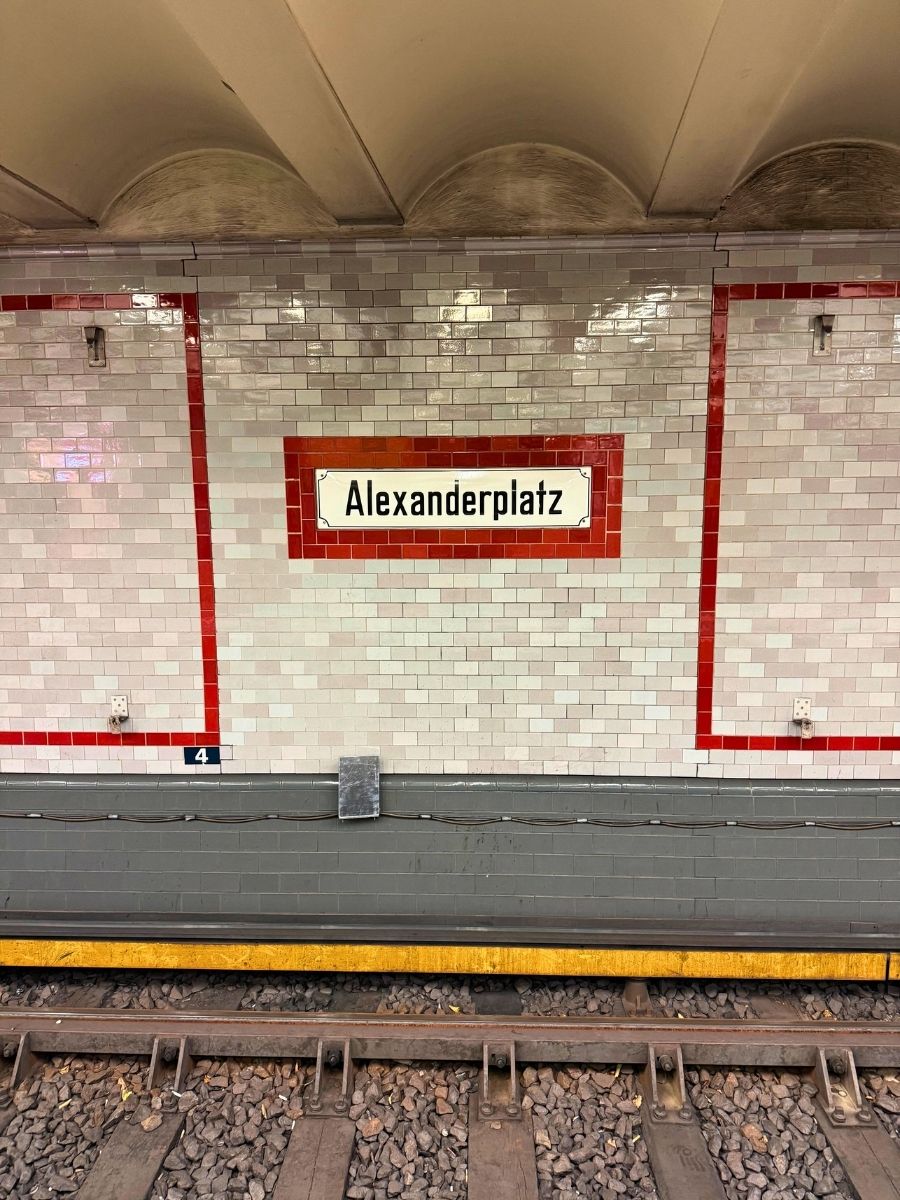
You might want to skip Berlin if
You prefer a slower pace, a tidier atmosphere, and a city that feels more picture-perfect. If you like places where you can walk everywhere, appreciate traditional architecture, and prefer things to be a little more organized, Munich will probably suit you better.
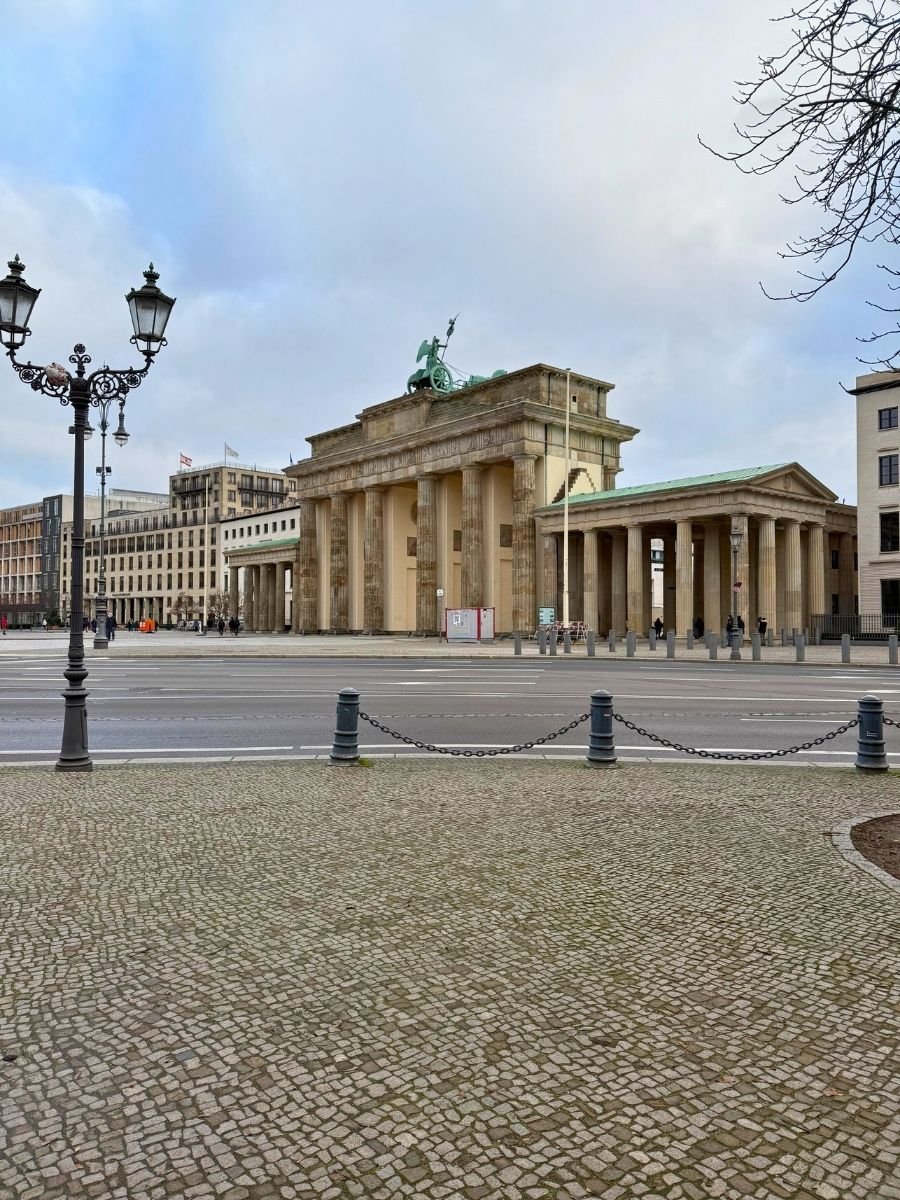

You’ll love Munich if
You’re drawn to cities with charm, tradition, and beauty around every corner. Munich is perfect if you love architecture, cozy cafés, and big green parks where you can slow down and enjoy life.
It’s also ideal if you appreciate structure, cleanliness, and a more refined vibe. And of course, if beer gardens and Bavarian food sound like your thing, you’ll fit right in.


You might want to skip Munich if
You prefer cities that feel more diverse, edgy, or international. If you get bored easily in places that feel a bit polished or quiet at night, Munich might not be your match.
It’s definitely more conservative than Berlin, so if you crave that creative, anything-goes energy, you might be happier heading north.
Accessibility: Berlin vs Munich
Both cities are fairly flat, which makes them generally easy to walk around. But when it comes to accessibility, there are some differences worth noting.
From my experience living in Berlin, a lot of the U-Bahn and S-Bahn stations still don’t have elevators or have ones that are often out of service. If you rely on escalators or lifts, you’ll probably find it a bit frustrating at times. The city is working on improving accessibility, but it’s definitely still a work in progress.
Munich, on the other hand, tends to be a little more reliable in this area. Many of its public transport stations have working elevators, and the city overall feels more manageable for those with mobility concerns.
The smaller city center and pedestrian-friendly layout also make it easier to get around without constantly depending on transit.
If accessibility is a key factor for your trip, Munich comes out slightly ahead. But if you’re comfortable navigating stairs and occasional long transfers, Berlin is still very doable.
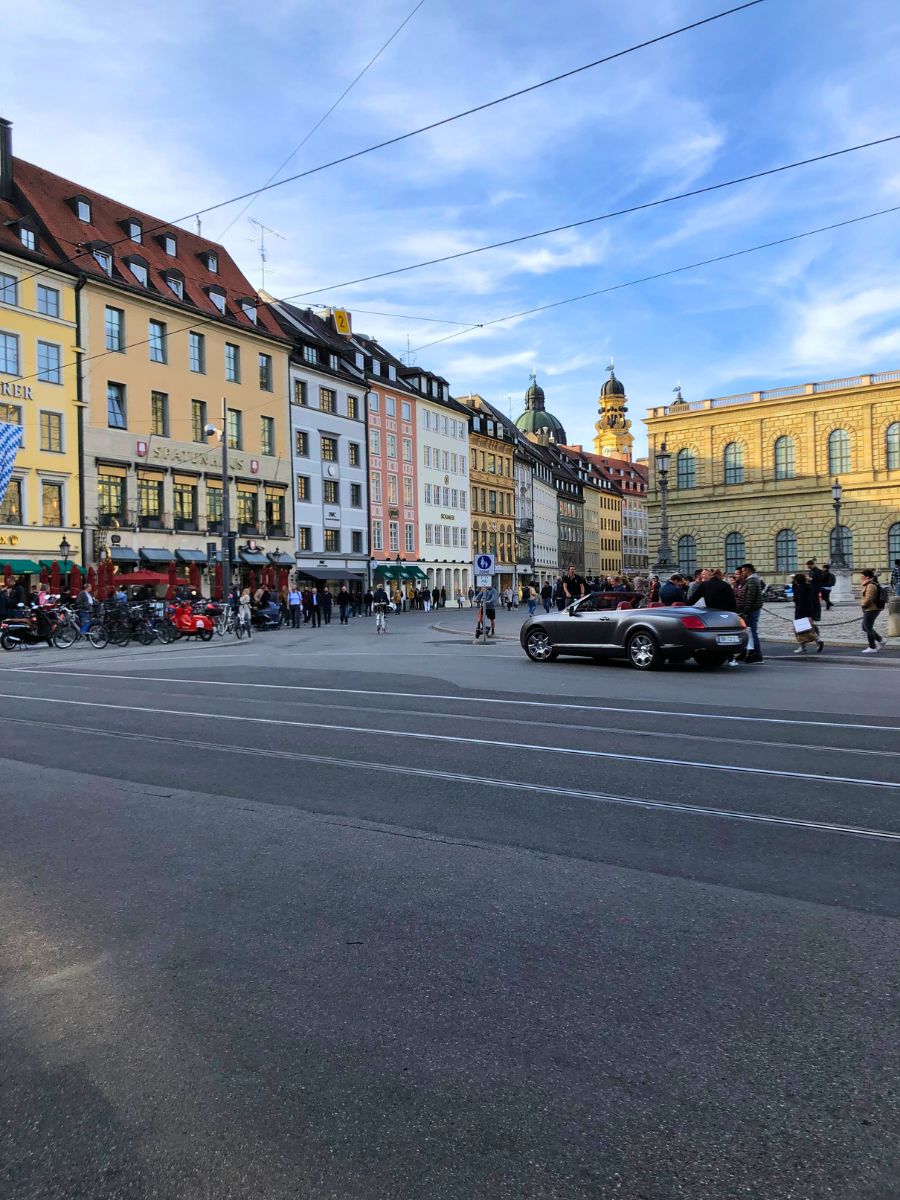
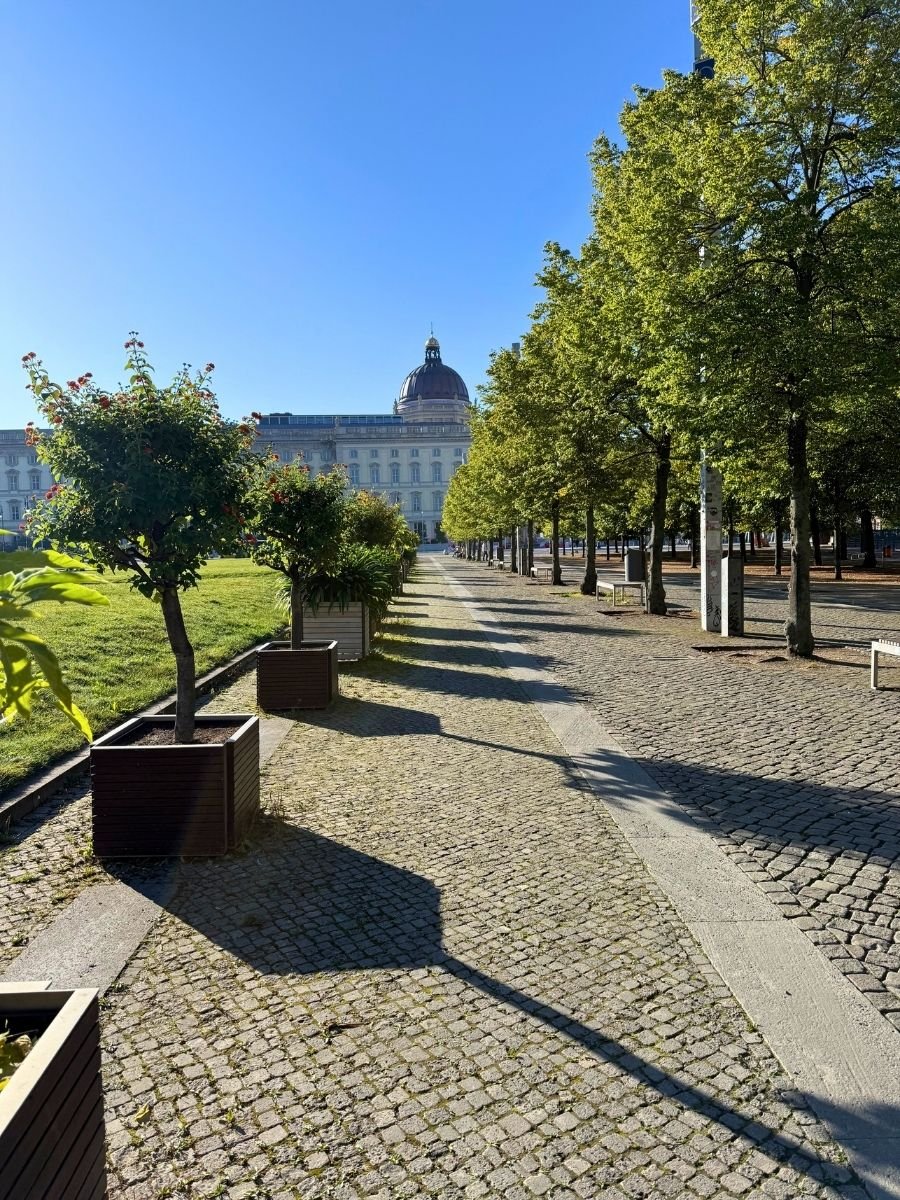
Getting Around: Berlin vs Munich
One thing to know about Berlin is that it’s huge. The main sights are pretty spread out, so you’ll definitely be hopping on public transport a lot.
For example, the East Side Gallery and the TV Tower are miles apart, and that’s just one of many long treks between attractions.
The good news is Berlin’s public transit system is excellent once you get the hang of it. The way to go is by getting the 7-Tage-Karte on the BVG app. It’s a straight-up bargain, and honestly, even if you’re only in Berlin for three days, it still works out cheaper than buying single tickets.
Just pay attention to the zones. Most of what you’ll want to see is in zones A and B, but if you’re coming from the airport or heading to Potsdam, you’ll need to grab a single zone C ticket for that trip.
Walking around central Berlin is easy, and there’s plenty to see along the way, but if you want to hit all the big sights, you’ll be using transit quite a bit.
Munich, on the other hand, is a dream to get around on foot. The city center is compact, flat, and full of beautiful architecture, so you can walk almost everywhere.
Depending on where you’re staying, you might grab a single-use transit ticket once in a while, but most of the time you’ll be perfectly fine exploring on foot. Munich also has a welcome card that is worth it because it includes transit and entry to the popular attractions.
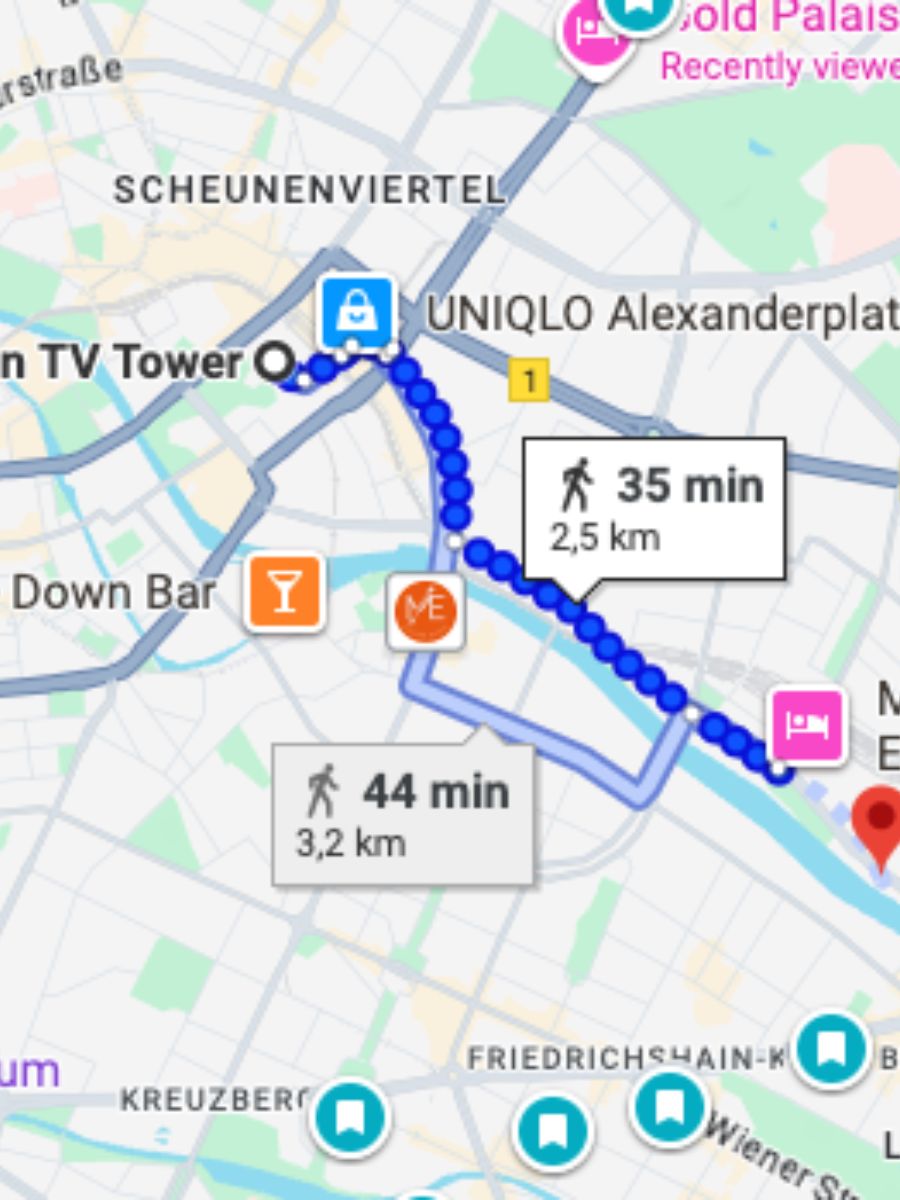
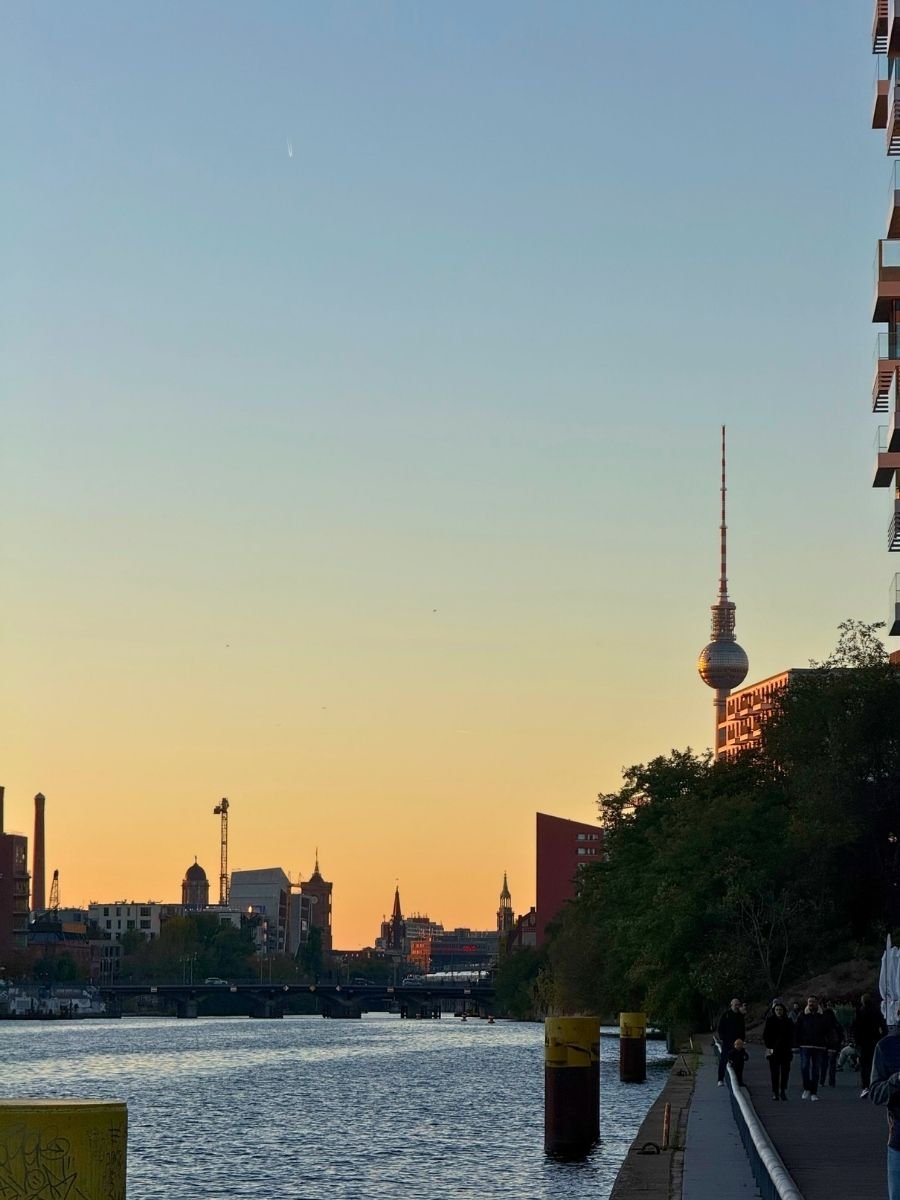
Cost Comparison: Berlin vs Munich
When it comes to overall cost, Berlin is definitely the cheaper city. Munich is known for being one of the most expensive places to live in Germany, and that carries over into hotels, food, and even beer prices.
That said, both cities can be done on a budget if you plan right. Berlin gives you more variety at every price point, while Munich leans toward the higher end, especially in the city center.
I wrote a full guide on how to budget when traveling and tips if you are traveling alone.
Here’s a quick look at how they compare on average:
| Category | Berlin | Munich |
|---|
| Hotel (mid-range, per night) | €100–€140 | €150–€200 |
| Hostel bed (per night) | €25–€45 | €40–€60 |
| Public transport (7-day pass) | €41 (AB zones) | €18 (inner zone) |
| Single transport ticket | €3.20 | €3.90 |
| Meal at casual restaurant | €12–€18 | €15–€25 |
| Beer (0.5L at bar or restaurant) | €4–€5 | €5–€7 |
| Coffee | €3–€4 | €4–€5 |
| Museum entry (average) | €10–€14 | €12–€16 |
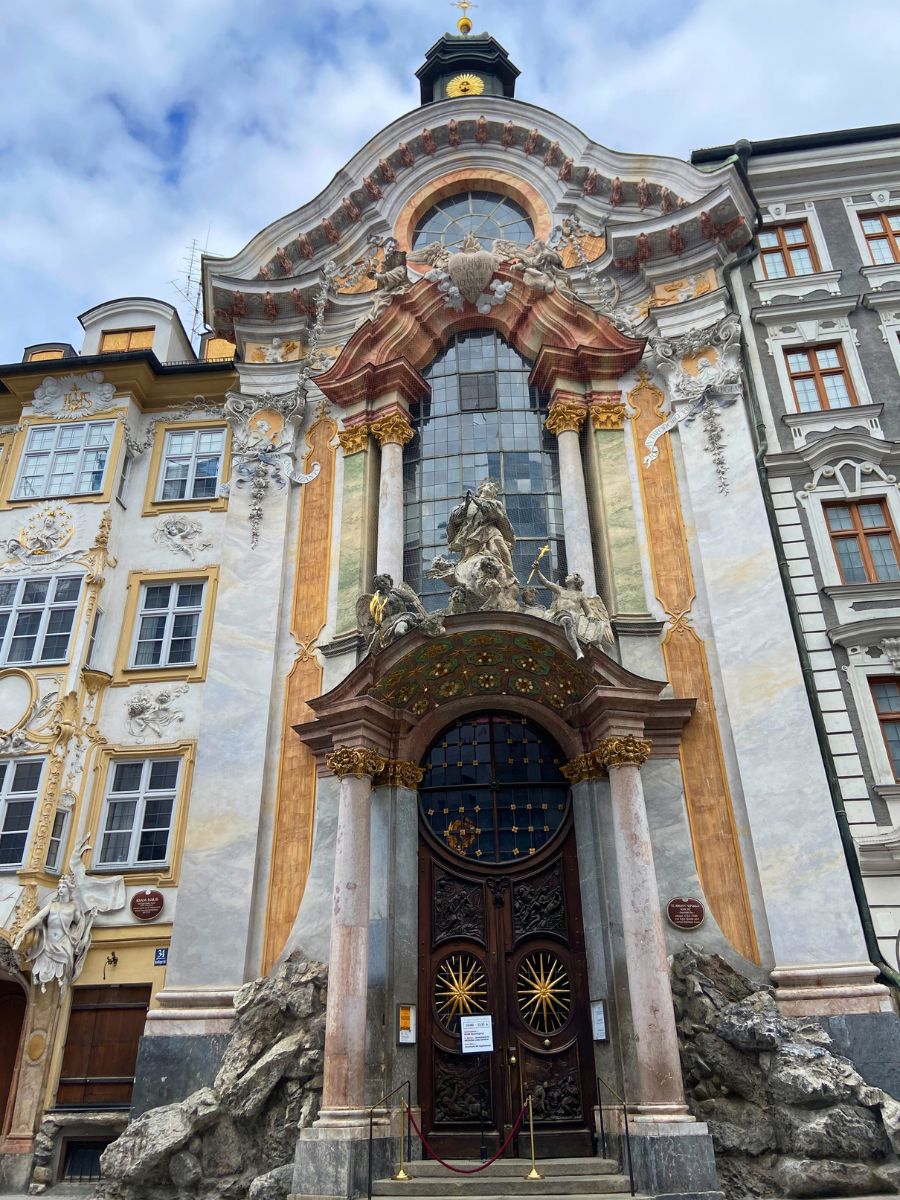
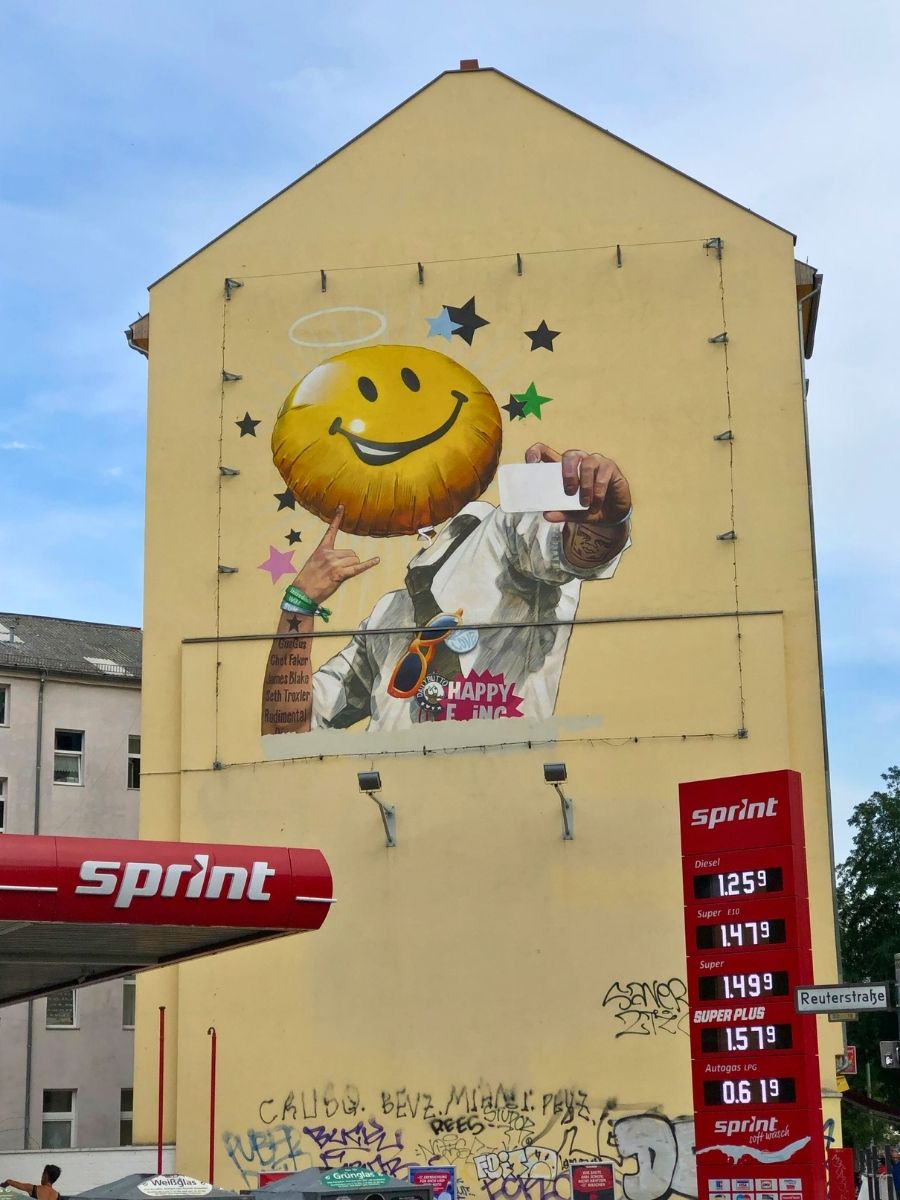
Hotel Recommendations for Berlin and Munich
Berlin
- Locke at East Side Gallery– Great hotel with a cafe for co-working. Located right on the riverside with direct views of the East Side Gallery in the Friedrichshain district.
- Hotel Adlon Kempinski Berlin– If you’re looking for refined, premium accommodation in a landmark location, this is a strong choice.
- Casa Camper Hotel Berlin– A boutique-style design hotel a short walk from Hackescher Markt.
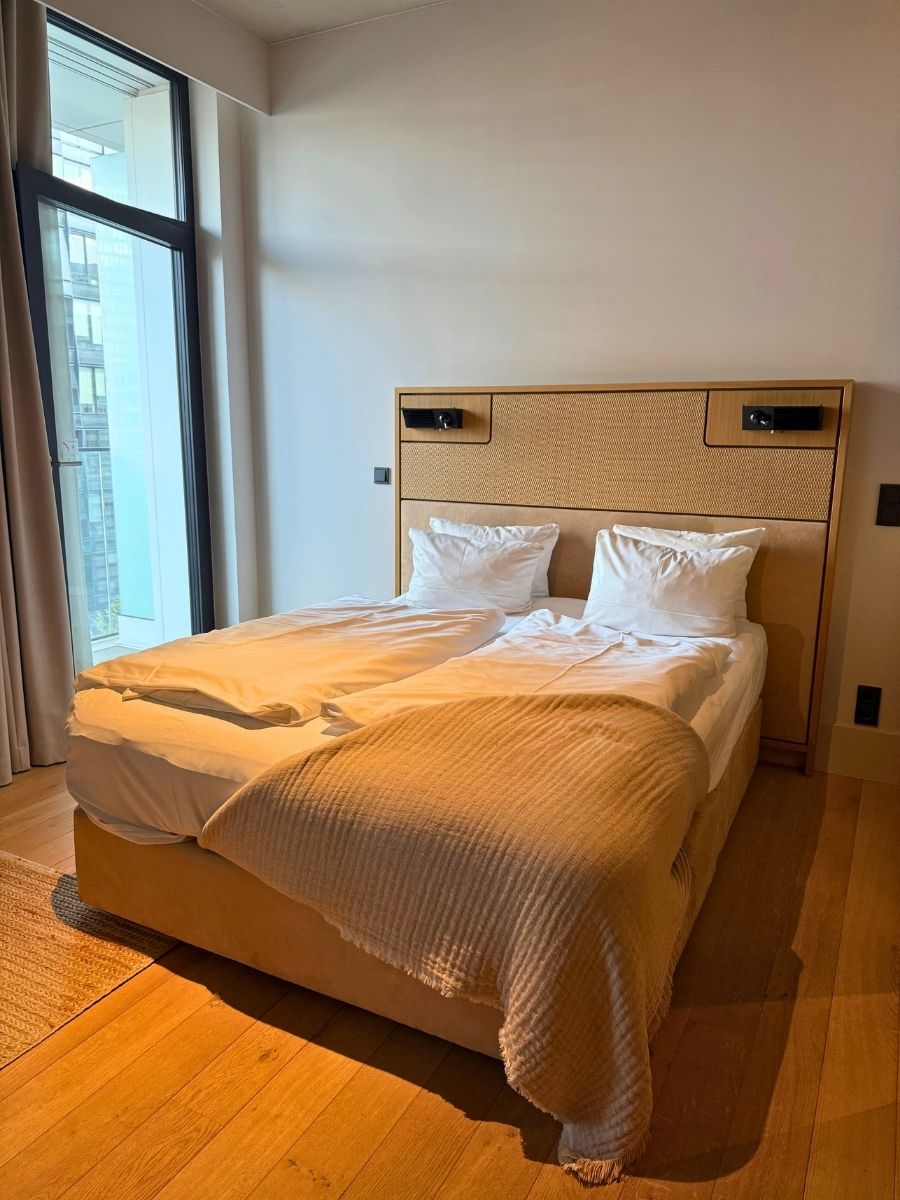

Munich
- LOUIS Hotel Munich– Right beside the famous Viktualienmarkt, in the city centre of Munich.
- Cortiina Hotel – Centrally located near Marienplatz and the Hofbräuhaus area, in the heart of Munich.
- BEYOND by Geisel– Because it’s top-tier boutique, the nightly rate may be higher; if budget is a concern, this may require more investment.
Food & Drink Scene: Berlin vs Munich
When it comes to food, I personally think Berlin has the edge. The restaurant scene is bigger, more creative, and has way more variety.
You can find everything from Michelin-star fine dining to street food that will blow your mind.
Berlin’s Food Scene
Berlin is home to several Michelin-starred spots like Tim Raue and CODA Dessert Dining, but honestly, the real food magic happens on the streets. Don’t leave without trying Mustafa’s Gemüse Kebap. It’s one of those spots that totally lives up to the hype.
The Asian food scene in Berlin is also incredible. One of my all-time favorites is Soy, a modern Thai restaurant that’s consistently good every single time.
If you’re in central Berlin and want something healthy for lunch, go straight to Klub Kitchen and get the hummus bowl. It’s fresh, fast, and exactly what you want after a morning of sightseeing.
For more traditional German food, there are some great local spots like Brauhaus Lemke, Gaststätte Sophieneck, and Schwarzwaldstuben. All are perfect for classic schnitzel, pretzels, and a cold beer.
And Berlin’s brunch scene? So good. Check out Hallesches Haus, 44 Brekkie, and House of Small Wonder for cozy breakfast vibes, amazing coffee, and beautifully plated food.

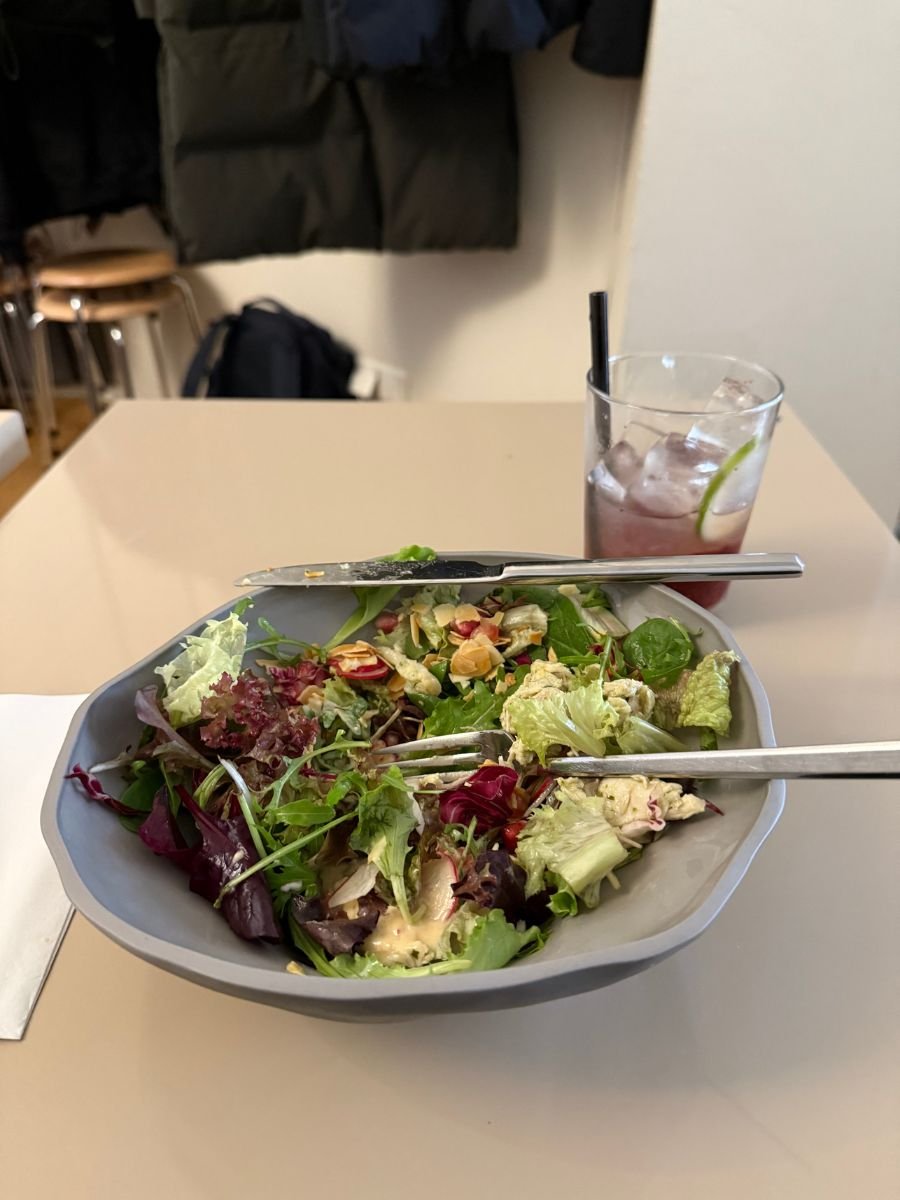
Munich’s Food Scene
Munich’s food scene is more traditional but just as delicious if you love hearty Bavarian flavors. You’ll find beer gardens, meat-heavy dishes, and cozy taverns that make you want to linger all afternoon.
Start with the Viktualienmarkt, an open-air food market in the city center with local produce, baked goods, and small stands serving everything from sausages to freshly pressed juices.
For that classic Bavarian beer hall experience, you can’t miss Hofbräuhaus, Augustiner Bräustuben, or Andechser am Dom. They’re touristy, yes, but they’re also iconic for a reason.
If you want something a bit more refined, try Spatenhaus an der Oper for traditional dishes served with a little extra polish, or Wirtshaus in der Au, which does a fantastic roast pork with dumplings.
Munich also has some lovely cafés and bakeries. I love Man Versus Machine for coffee, Café Frischhut for pastries, and Cotidiano for breakfast. In the summer, grab a table at one of the many outdoor beer gardens, like Chinesischer Turm in the English Garden, and enjoy a cold beer under the trees.
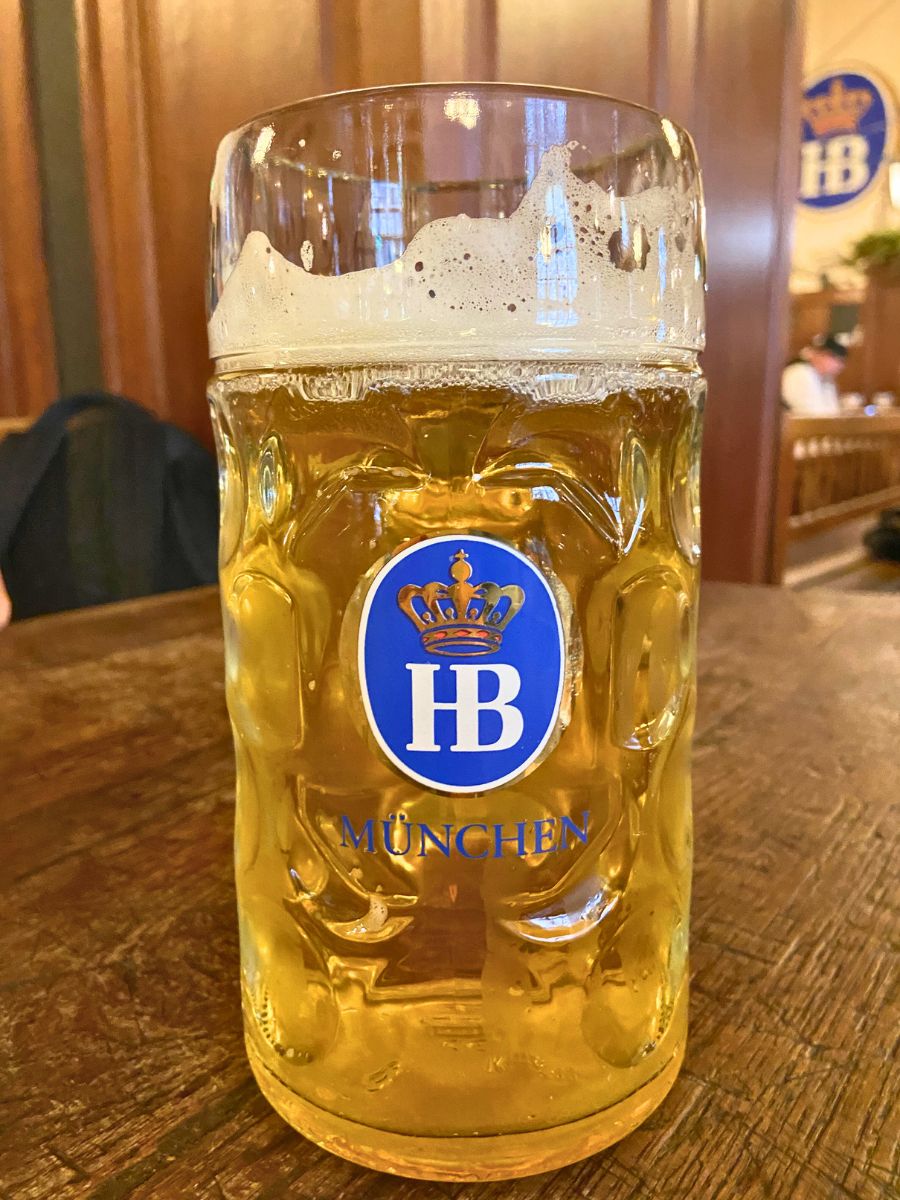
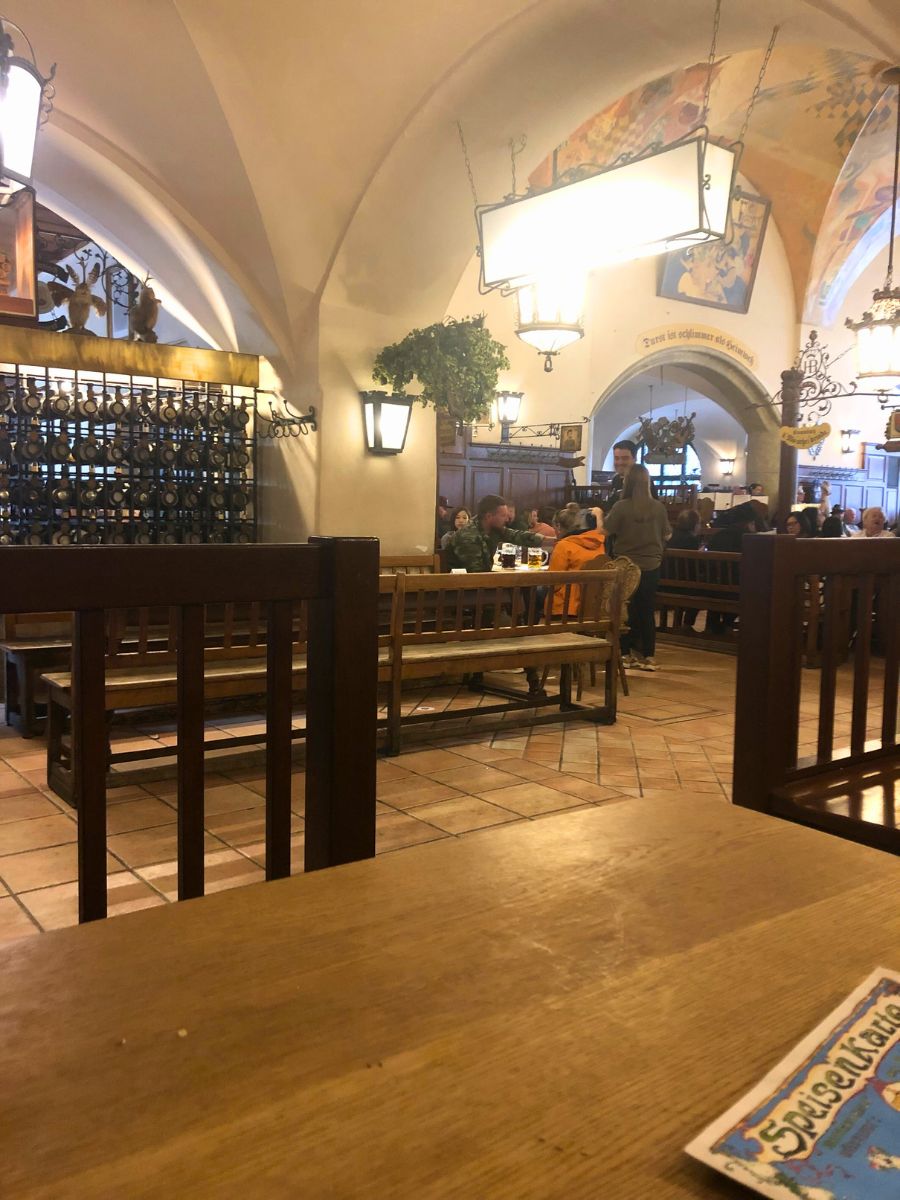
Nightlife: Berlin vs Munich
When it comes to nightlife, Berlin is on another level. The club scene here is honestly world-famous and unlike anywhere else. Whether you’re into techno, indie, or something totally experimental, there’s a spot for it. Places like Berghain, Sisyphos, and Watergate are basically nightlife legends, but you don’t have to be a hardcore clubber to have fun in Berlin after dark.
The city is full of quirky bars with personality. You’ll find themed spots like The Black Lodge, a Twin Peaks-inspired bar that feels straight out of the show, or hidden cocktail bars that look like nothing special from the outside but totally surprise you once you’re in. Berlin’s nightlife really reflects its personality: creative, a little wild, and full of surprises.

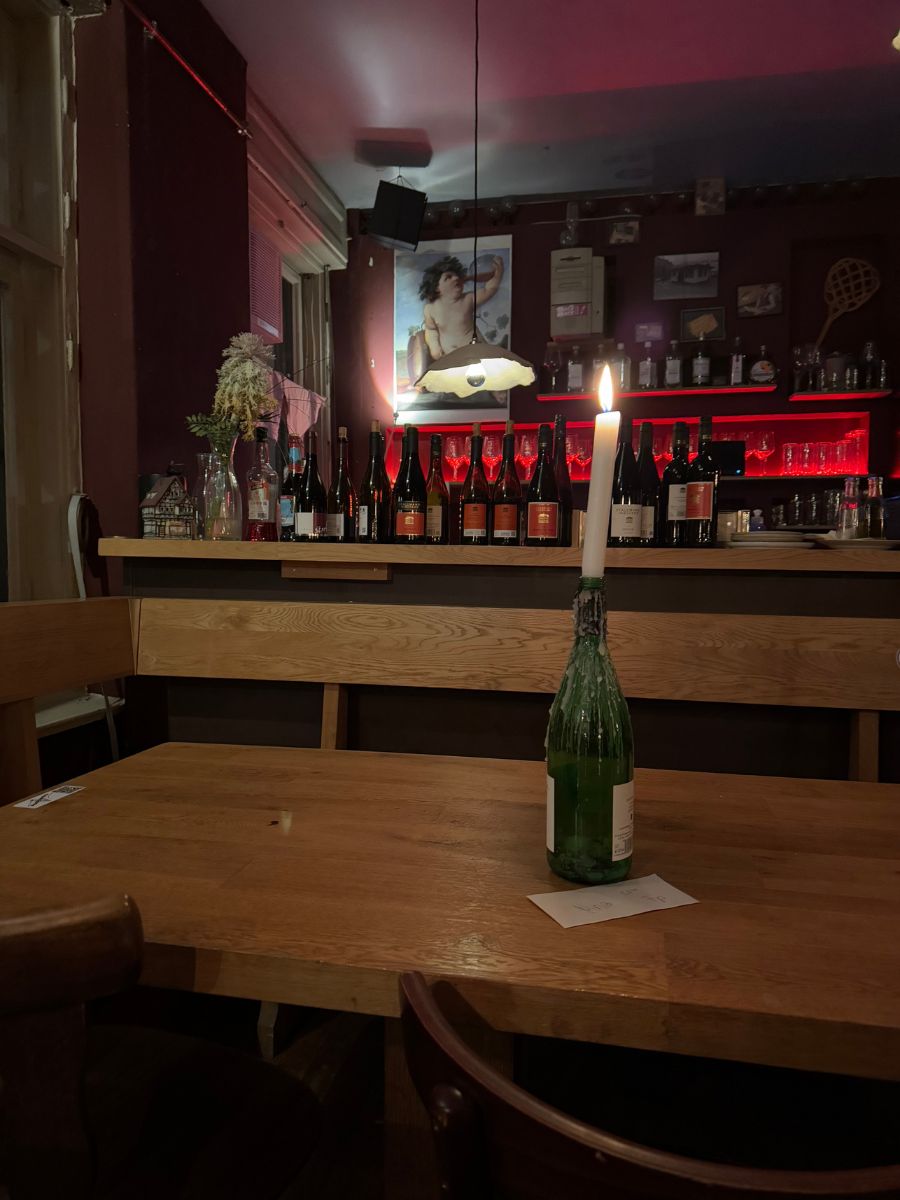
Munich, on the other hand, is much more laid back once the sun goes down. The city is known for its beer halls and traditional taverns where people gather for long conversations over a few drinks. Hofbräuhaus, Augustiner-Keller, and Paulaner Bräuhaus are all classic options for that authentic Bavarian experience.
That said, Munich does have some nightlife if you look for it. Around Glockenbachviertel and Schwabing, you’ll find stylish cocktail bars, wine lounges, and a few smaller clubs. It’s just a totally different vibe, more about relaxed evenings with friends than all-night raves.
So if nightlife is a big part of your trip, Berlin is hands down the better choice. But if you’re more into cozy evenings and great beer in a traditional setting, Munich will be right up your alley.
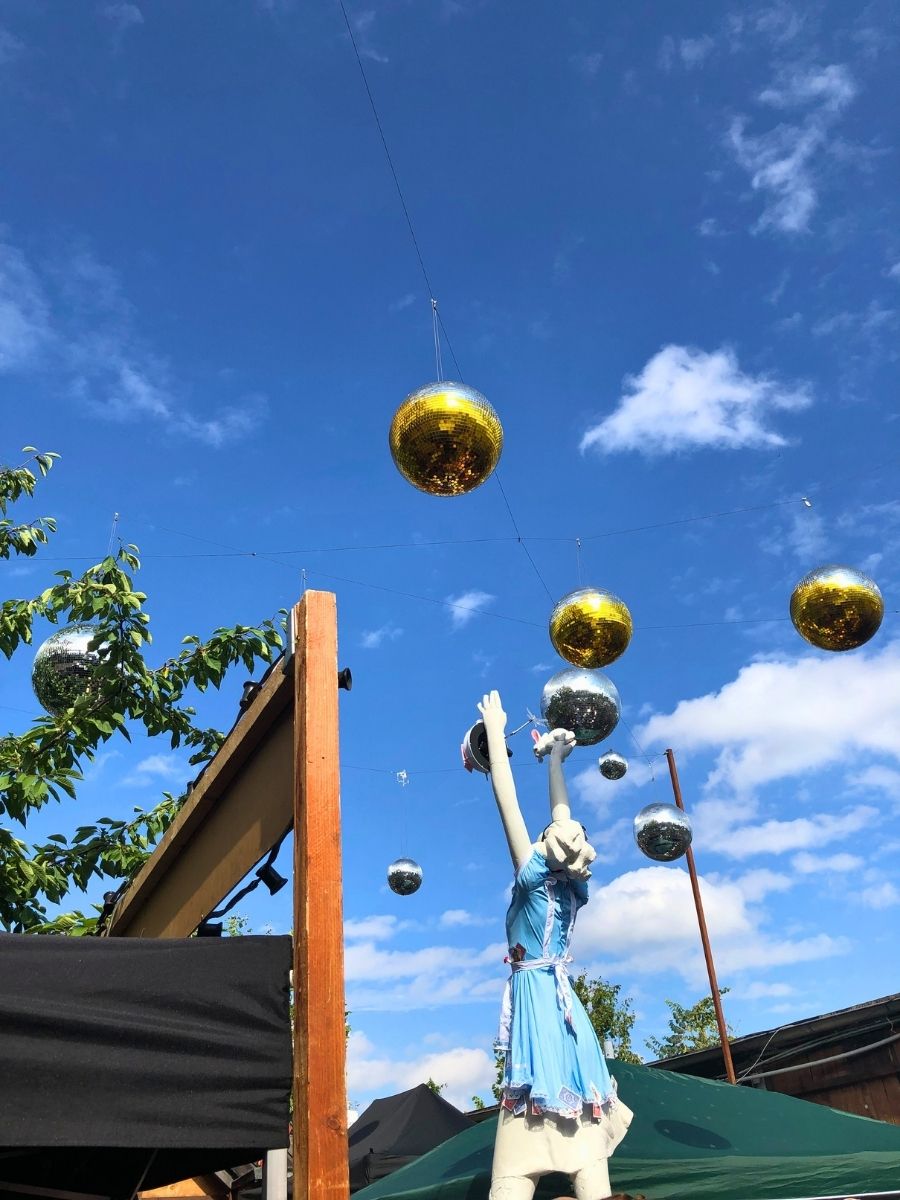
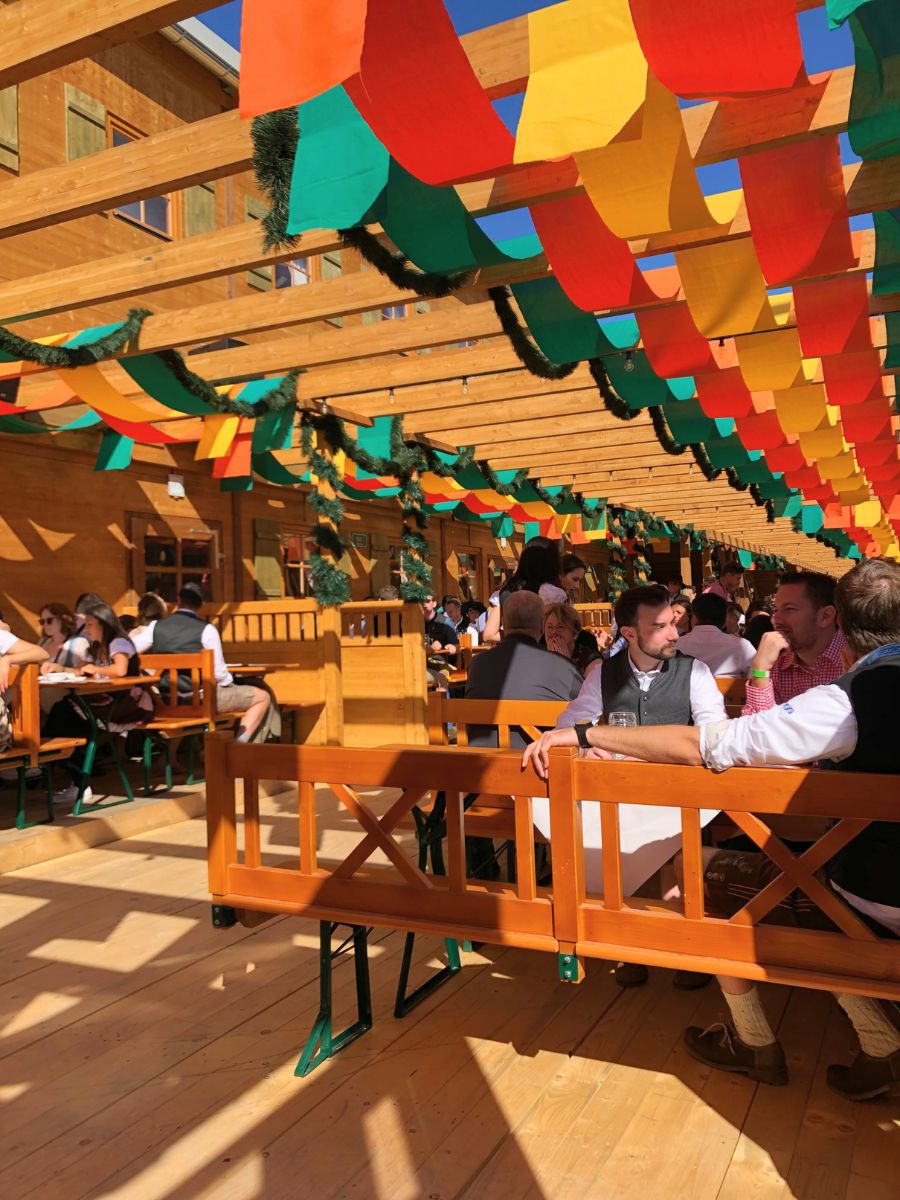
Berlin
Top Sights in Berlin
Berlin’s top attractions tell the story of its past while showing off how modern and bold the city has become.
- Brandenburg Gate – The symbol of Berlin and a great starting point for first-time visitors.
- Berlin Wall Memorial & East Side Gallery – See powerful murals and sections of the wall that shaped modern Germany.
- Reichstag Building – Walk the glass dome for one of the best views in the city (book ahead).
- Museum Island – A UNESCO World Heritage site with five incredible museums, including the Pergamon.
- Holocaust Memorial – A moving and important stop for understanding Berlin’s history.
- Checkpoint Charlie – Touristy but worth a quick visit for context on Cold War Berlin.
- Berlin Cathedral (Berliner Dom) – Stunning inside and out, with panoramic views from the dome.
👉 If you are looking for a great tour that combines a lot of the main sights, I would go with this one. Also, I highly recommend the Berlin Welcome Card, which offers discounts or free entry to many sights and includes the transit pass, so it’s a no-brainer.

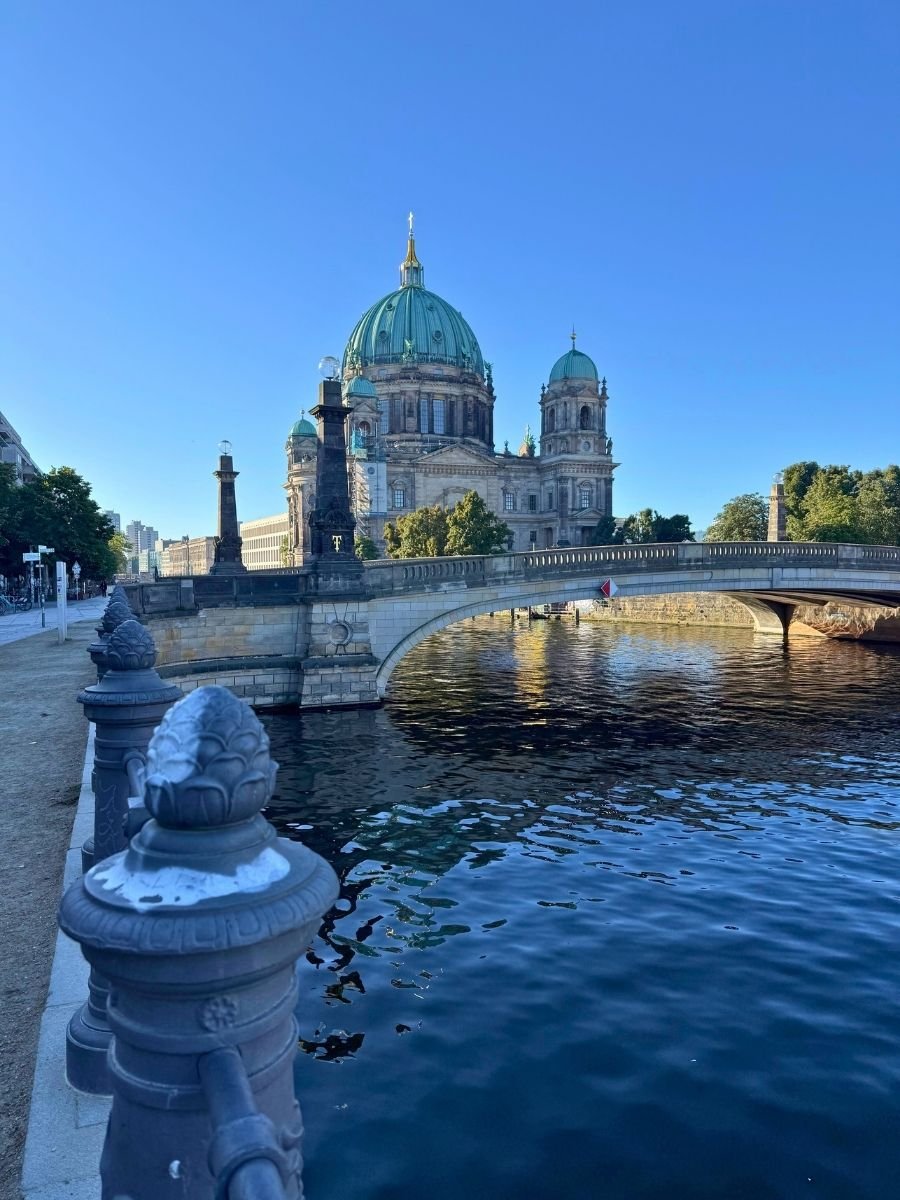
Lesser-Known Things to Do in Berlin
Berlin’s charm really shines through in its smaller, more local experiences.
- Holzmarkt 25 – A riverside community space filled with bars, cafés, and live music, perfect for summer evenings.
- Treptower Park – A massive green space with the striking Soviet War Memorial and peaceful walking paths along the Spree.
- Tempelhofer Feld – A former airport turned public park where locals picnic, skate, and fly kites.
- Thai Park – In Preußenpark, locals set up makeshift Thai food stalls on sunny weekends.
- Mauerpark Flea Market – Great for vintage finds and live karaoke on Sundays.
Prinzessinnengarten – A cool urban garden café near Moritzplatz where you can chill and grab coffee. - Kreuzberg & Neukölln neighborhoods – Packed with street art, small galleries, vintage shops, and bars with character.
- Boat cruise on the Spree River – A fun and easy way to see the city from a different perspective.


👉 Check out this Hidden Side of Berlin Tour that takes you to some of the coolest hidden courtyards.
Munich
Top Sights in Munich
Munich feels polished and picture-perfect, with architecture and culture everywhere you look.
- Marienplatz – The heart of the city with the famous Glockenspiel and beautiful old buildings.
English Garden – One of Europe’s largest city parks, with beer gardens, river surfers, and long walking paths. - Nymphenburg Palace – A gorgeous baroque palace with gardens you can spend hours exploring.
- Viktualienmarkt – The city’s open-air market filled with local food, flowers, and craft stalls.
- Residenz Museum – The former royal palace of the Bavarian monarchs, filled with art and history.
- St. Peter’s Church Tower – Climb to the top for the best view of the city and the Alps on a clear day.
- BMW Museum – Sleek, modern, and surprisingly fun even if you’re not a car enthusiast.
👉 I recommend taking a walking tour of Munich so you can learn the full history of the Third Reich from a local.
Lesser-Known Things to Do in Munich
Munich may be more traditional, but there are still plenty of unique and offbeat experiences.
- Gärtnerplatzviertel – A lively local neighborhood with boutiques, cafés, and evening wine bars.
- Asamkirche – A small but breathtaking rococo church that’s easy to miss from the outside.
- Eisbach Wave – Watch surfers ride the man-made wave in the English Garden.
- Olympiapark – Take a walk up the hill for views of the city and grab a drink by the lake.
- Auer Dult Market – A traditional fair and market that happens a few times a year, great for vintage finds and local food.
- Deutsches Museum – Massive science and technology museum that’s easy to spend half a day exploring.
Which City Has Better Day Trips?
If you’re planning to base yourself in either Munich or Berlin, you’ll have some great day trip options from both.
The difference is that Berlin’s day trips lean more toward history and culture, while Munich’s are all about fairy-tale castles, mountains, and that cozy Bavarian countryside vibe.
Day Trips from Berlin
Potsdam
About 1 hour by train or an easy (and really fun) bike ride from Berlin. Potsdam is gorgeous and totally worth a visit. It’s full of royal palaces, gardens, and lakes.
If the weather is nice, I insist you take a guided bike tour from Berlin to Potsdam. You’ll see so much more this way, and it’s hands down one of the best day trips I’ve ever done.
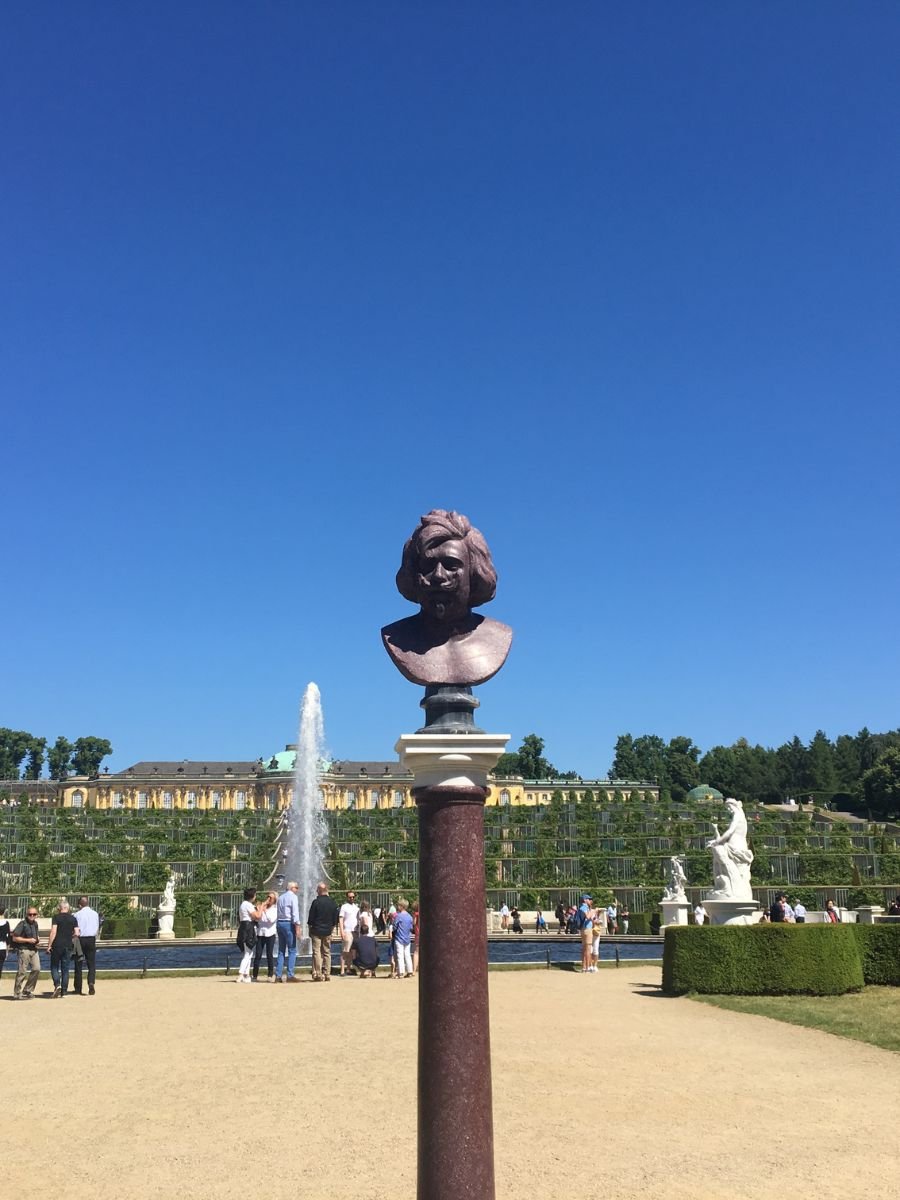
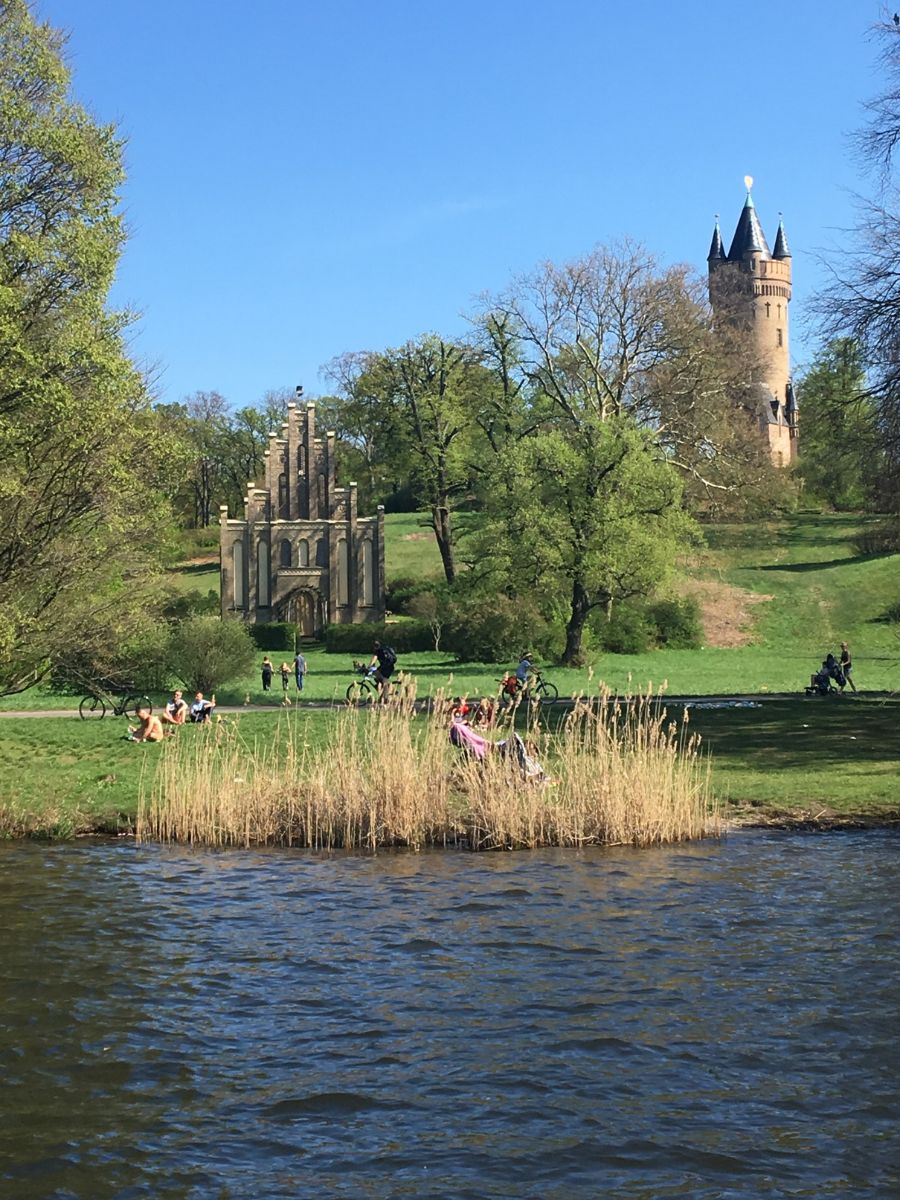
Leipzig
Around 1 hour and 15 minutes by train. Leipzig is often called “the new Berlin” because it has a creative, artsy edge but without the chaos of a huge city.
You can visit the St. Thomas Church, where Bach worked, check out the Museum of Fine Arts, and explore the Spinnerei, a former cotton mill now filled with galleries and studios.
Sachsenhausen Concentration Camp
About 45 minutes by train from central Berlin. A heavy but incredibly important visit if you’re interested in World War II history. Joining a day tour like this one is best since it includes a guide.
Wannsee
About 40 minutes from Berlin. Perfect for a sunny day when you just want to swim, picnic, or hang by the lake.
Day Trips from Munich
Munich’s day trips are some of the best in all of Germany. They’re postcard-perfect and usually involve castles, lakes, or mountains.
Neuschwanstein Castle
About 2 hours by train and bus. A little more legwork to get to this one. So I would recommend joining a day trip.
This is the famous “Disney castle,” and yes, it’s as dreamy as it looks. The nearby town of Füssen is adorable too.
Dachau Concentration Camp Memorial
Around 30 minutes by train. A moving and well-organized site that offers deep insight into Germany’s WWII history.
I would recommend joining a day tour for this day trip, as you want to get all the history from an expert.
Salzburg, Austria
About 1.5 hours by train. You can easily cross the border for the day and explore Mozart’s hometown, the fortress, and the beautiful Old Town streets.
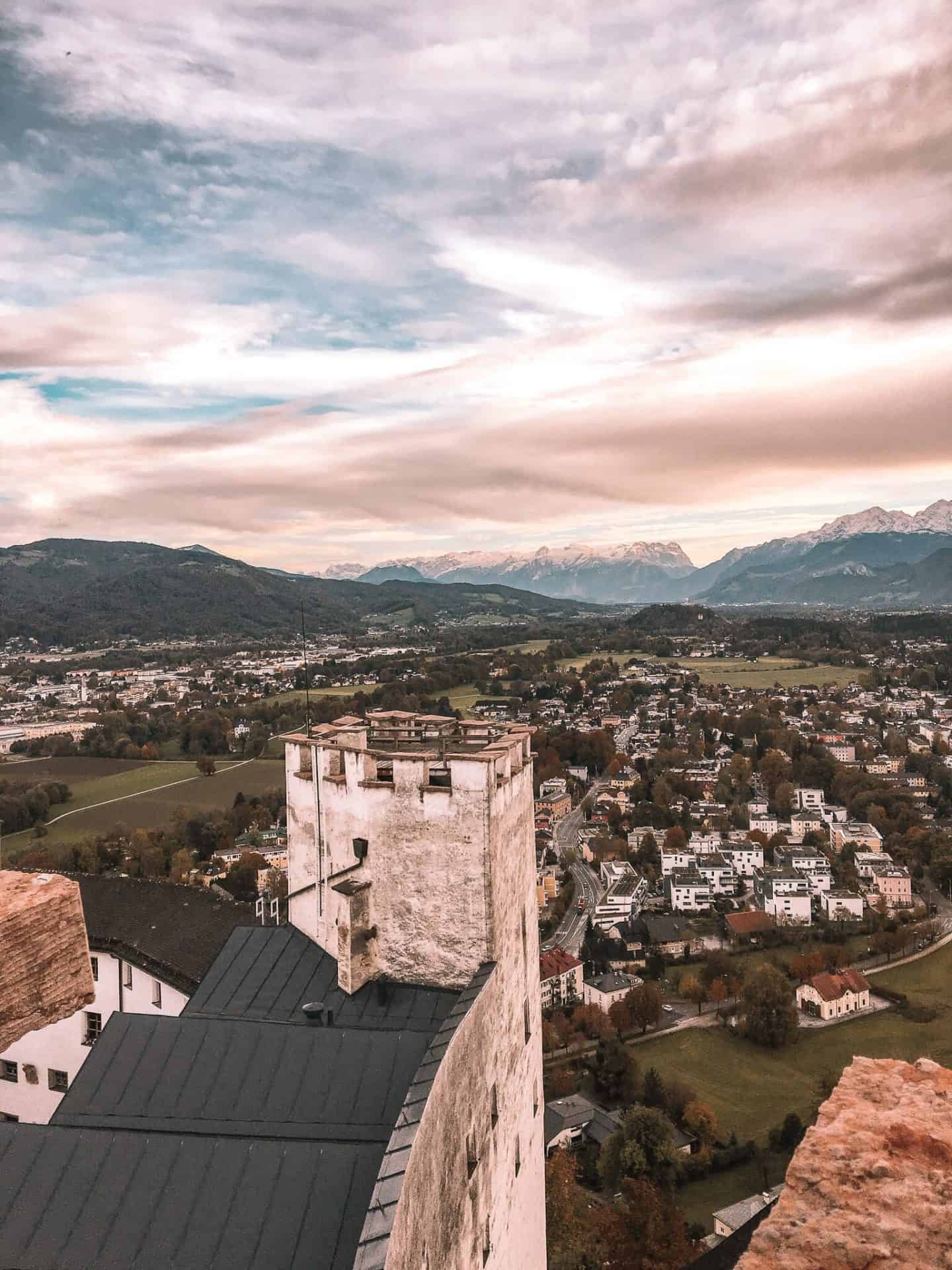
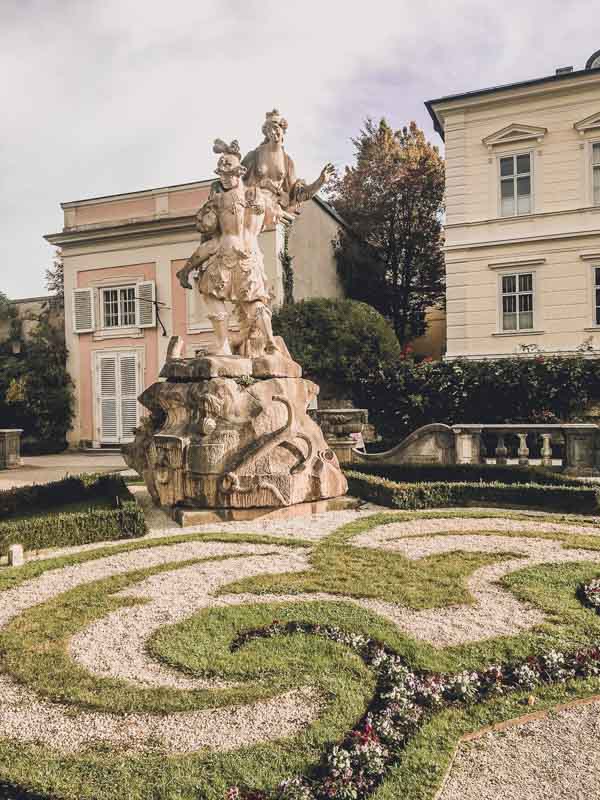
Nuremberg
Around 1 hour by train. I would put Nuremberg at the top of the list for day trips from Munich. Great for medieval architecture, markets, and the historic castle.
There is a lot to see in Nuremberg that can be easily covered in one day if you plan it correctly.
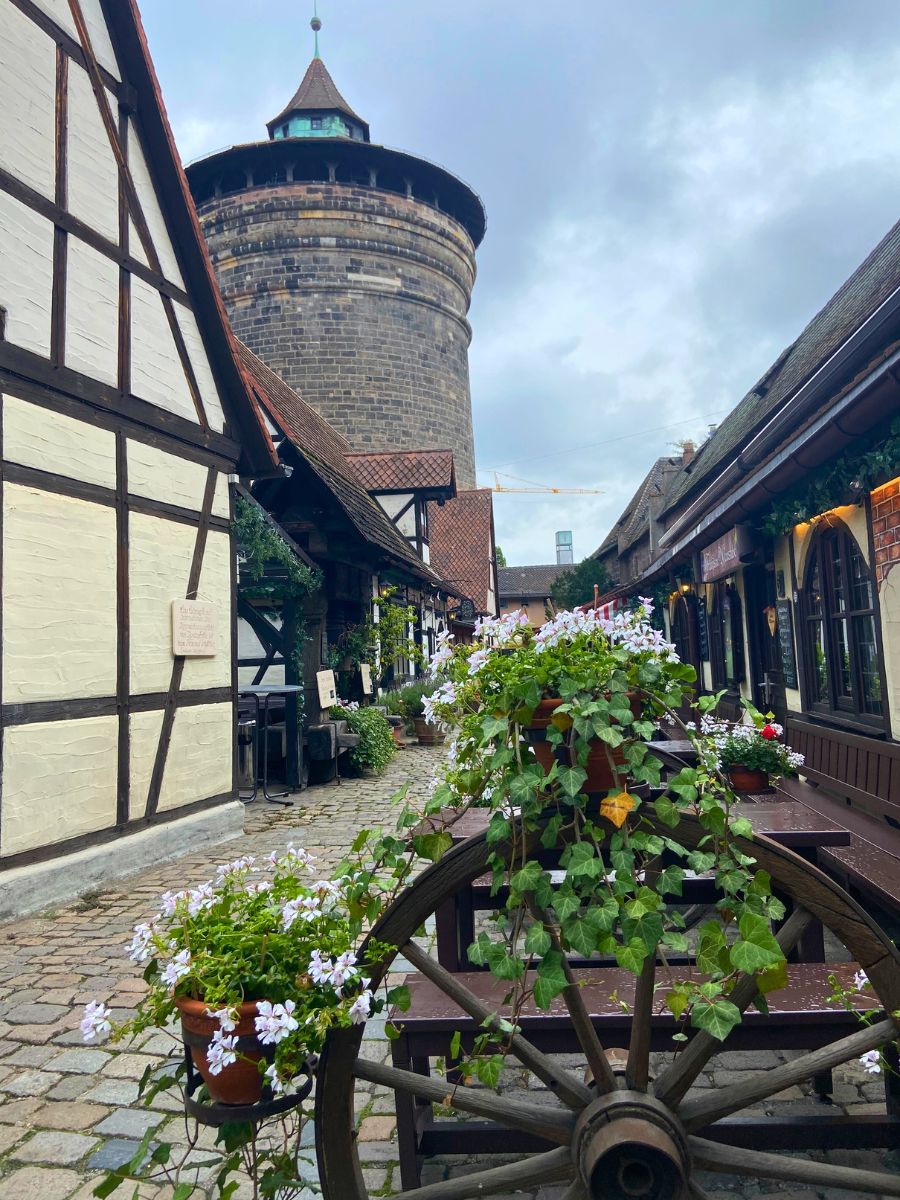
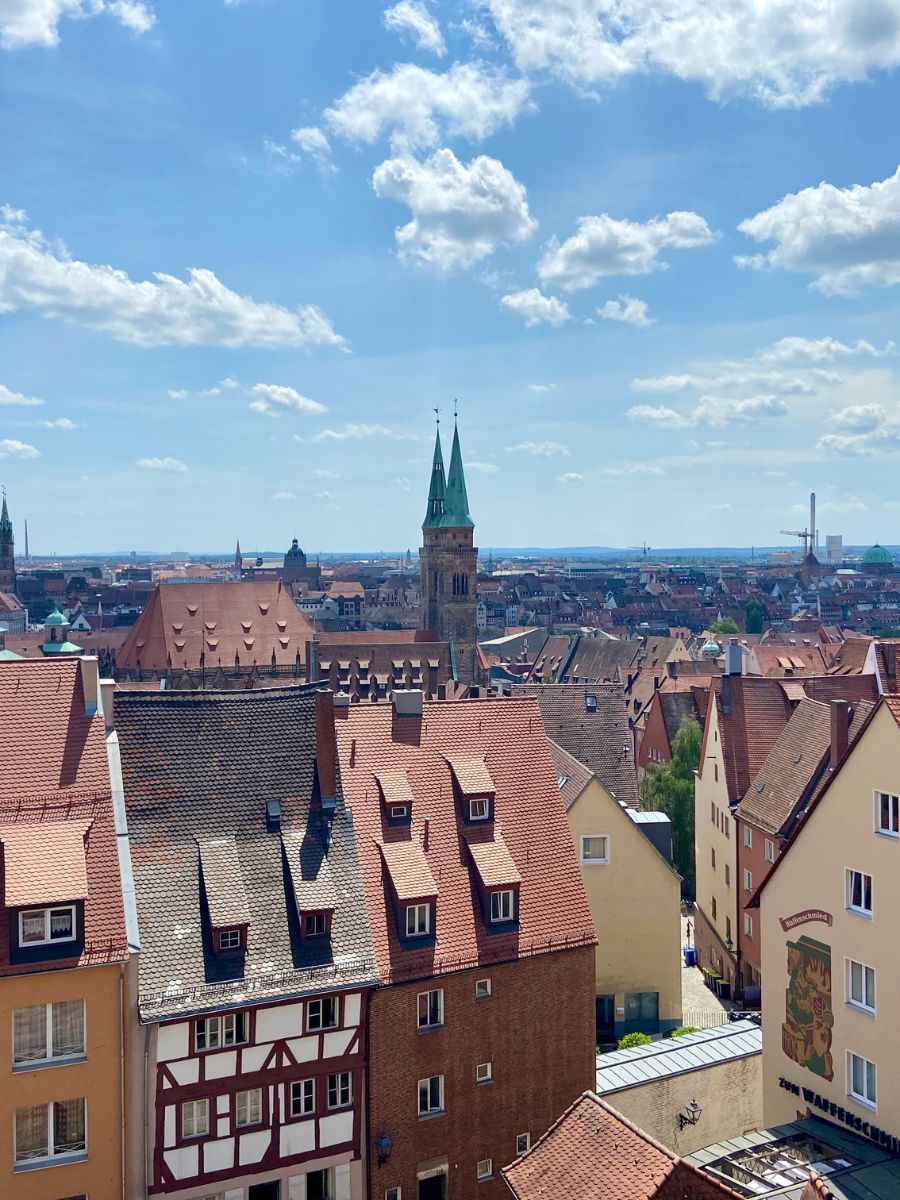
Which City Is Better for Solo Travelers?
Both Berlin and Munich are great choices for solo travelers, but the vibe is really different.
If you’re new to solo travel, Munich is probably the better city to start with. It’s smaller, easier to navigate, and has a really safe, relaxed feel. The people are friendly enough, but just know that in Munich, not everyone loves speaking English. It’s not that they won’t, it’s just a little less common compared to Berlin.
Berlin, on the other hand, is amazing for solo travel if you’re already comfortable in big cities. It’s super international, and you’ll meet people from all over the world. English is widely spoken, and it’s easy to connect with others at cafés, events, or tours.
That said, it can feel a bit intense if you’re new to traveling alone. It’s busy, it’s huge, and there’s a lot going on, so if you get overwhelmed in big city environments, it might take you a day or two to find your rhythm.
Both cities are safe enough for solo travelers, especially women, but like anywhere, it’s good to be mindful of your surroundings.
Do a little research on neighborhoods before you book your stay. In Berlin, areas like Mitte, Prenzlauer Berg, and Charlottenburg are great.
In Munich, you’ll be fine almost anywhere near the city center.
So, if it’s your first solo trip, start with Munich. But if you’re ready for something more dynamic, Berlin will absolutely win your heart.
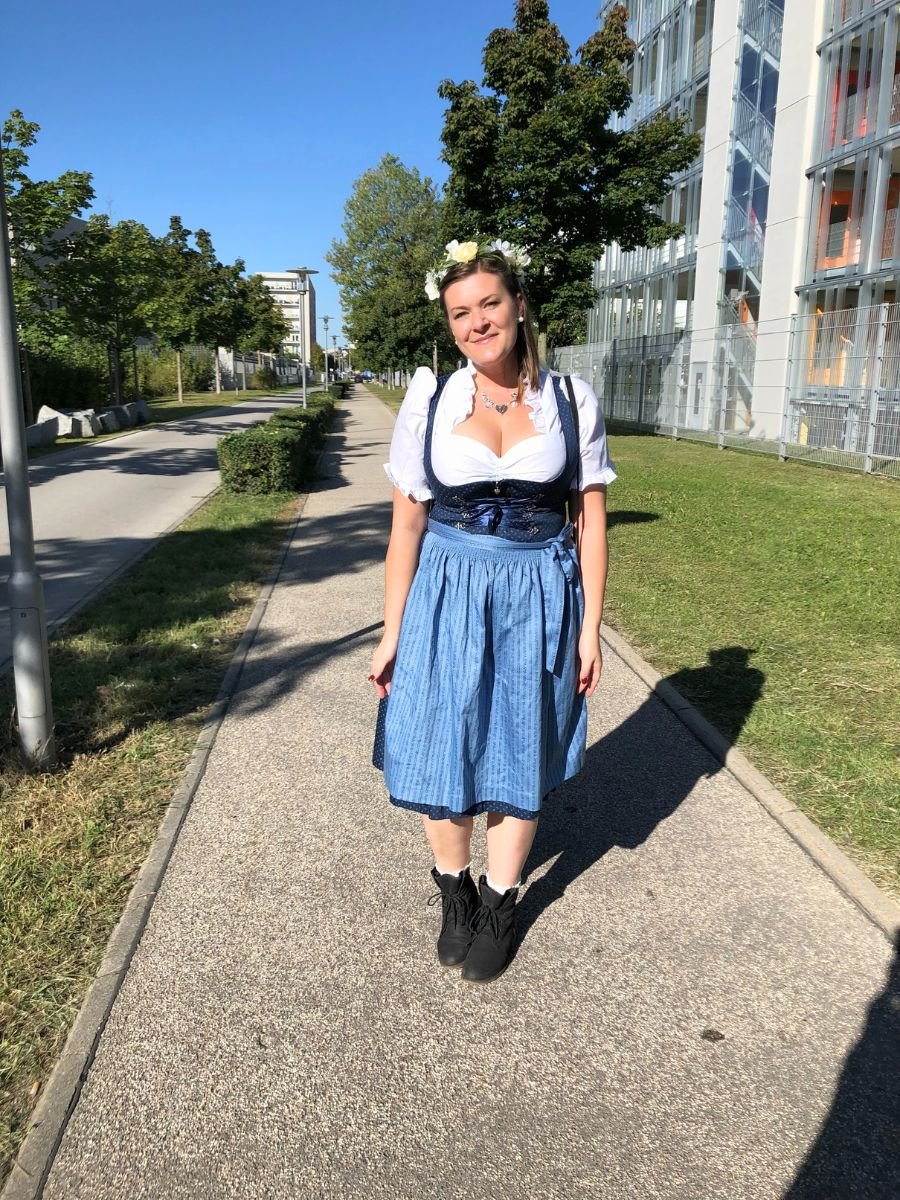
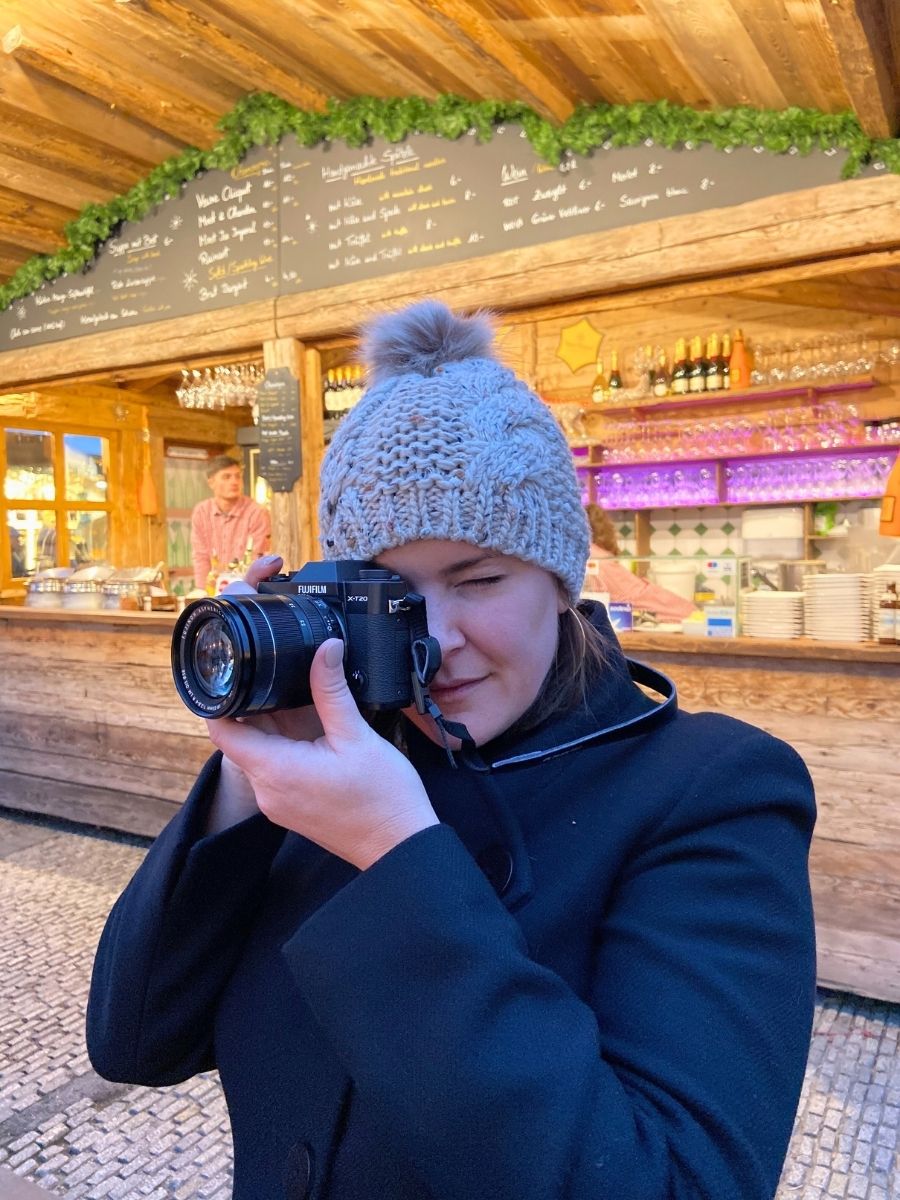
Final Verdict: Which City Is Better for You?
Honestly, it all comes down to what kind of trip you want. Berlin and Munich are so different that once you know your travel style, the choice becomes pretty clear.
If you love big cities with personality, Berlin is your spot. It’s gritty, creative, and full of history. You’ll find incredible food, art, and nightlife, but it can feel a bit chaotic at times. For travelers who like energy, diversity, and a little edge, Berlin delivers in every way.
If you’re drawn to traditional charm and a slower pace, Munich will win you over. It’s beautiful, walkable, and feels more like a storybook version of Germany. The architecture is stunning, the beer gardens are endless, and you can sneak off to castles and mountain lakes in under two hours.
My personal take? If you have the time, do both. Spend a few days soaking up Berlin’s buzz, then fly or train down to Munich for the scenery and Bavarian vibes. You’ll get the best of both worlds, and see two sides of Germany that couldn’t be more different.
But if you have to choose just one, go with your gut.
- Pick Berlin if you crave creativity, history, and a city that never sleeps.
- Pick Munich if you want postcard views, comfort, and that classic German feel.
Either way, you can’t go wrong. Both cities are unforgettable in their own way, it just depends on what kind of adventure you’re after.
Still have questions? Contact me, I’d love to help!
Planning A Trip to Germany?
Check out these resources:
Berlin
- 2 Day Berlin Christmas Markets Itinerary + Map
- Most Idyllic German Villages Near Berlin
- Best & Worst Berlin Christmas Markets
- Cafes in Berlin That Allow Laptops
- Berlin or Munich: Which is a Better City to Visit

